The Biggest Achievement African Americans Made the Year You Were Born

Americans have been celebrating Black History Month each February since 1976, when President Gerald Ford called upon his fellow citizens to “seize the opportunity to honor the too-often neglected accomplishments of black Americans in every area of endeavor throughout our history.” Those undercelebrated accomplishments date all the way back to the early 17th century, when the first Africans arrived as slaves in the English colonies. Ever since, African Americans have been making important contributions to American society and culture. While many African American achievements are remembered only in history books, others are so fresh that living Americans still remember them. In honor of those contemporaneous contributions to American greatness, here are African Americans’ most significant achievements every year from 1940 until 2000.
1940: Hattie McDaniel is the first African American to win an Academy Award.
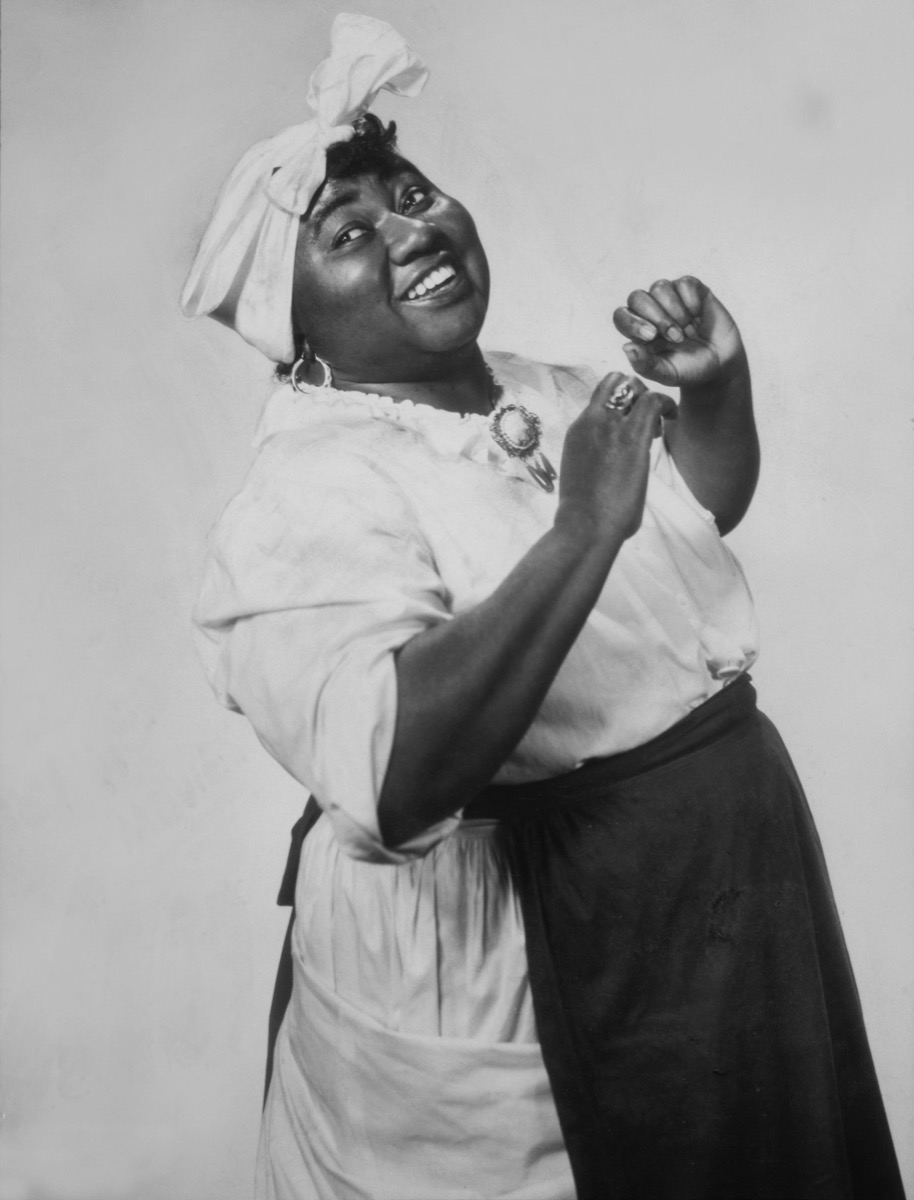
In 1940, 44-year-old actress Hattie McDaniel became the first African American movie star to win an Academy Award when she received an Oscar for her role in the 1939 film Gone with the Wind. McDaniel—who won in the Best Supporting Actress category for her portrayal of Scarlett O’Hara’s devoted slave, Mammy—accepted her award at Hollywood’s Ambassador Hotel, which at that time was segregated. Because African Americans weren’t allowed on the premises, producer David O. Selznick had to call in a special favor so that McDaniel could attend, according to The Hollywood Reporter. McDaniel was not allowed to sit with the rest of the cast, but instead was relegated to a small table at the back of the room.
1941: Dorie Miller becomes World War II’s first black hero at Pearl Harbor.
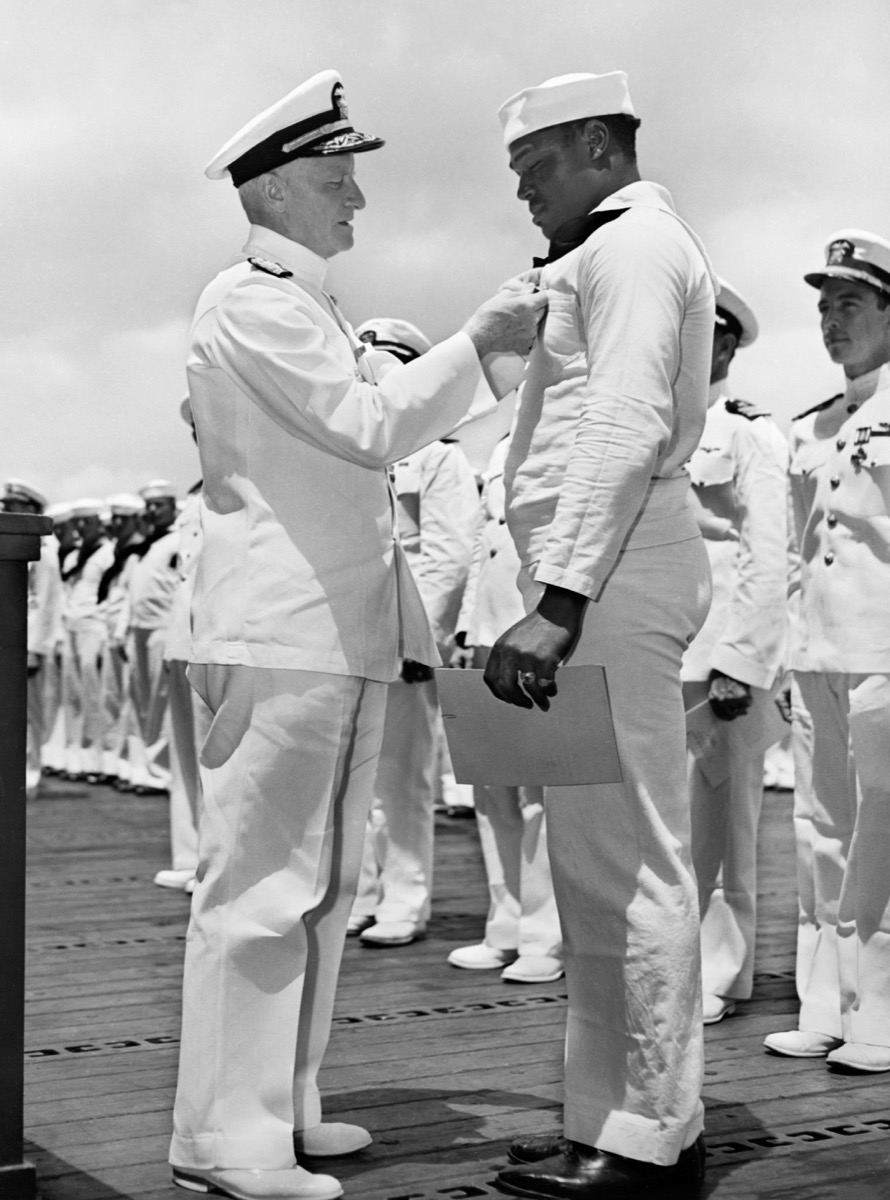
On Dec. 7, 1941, the Japanese Imperial Navy attacked the United States with a strike on its naval base at Pearl Harbor in Honolulu, Hawaii. That morning, 22-year-old Mess Attendant Third Class Doris “Dorie” Miller was below deck doing laundry on the battleship West Virginia. In the chaos that followed, Navy Times reports, Miller carried his mortally wounded captain to safety, then took it upon himself—with neither orders nor training, since African Americans at that time were only allowed to be messmen in the Navy—to fire an unmanned machine gun at incoming Japanese planes. When West Virginia subsequently sank, Miller was among the last to abandon ship, pulling several injured sailors with him as he swam to shore. For his gallantry during combat, Miller received the Navy Cross—the Navy’s third-highest honor at that time.
1942: A group of activists, including African American students, form the interracial Congress of Racial Equality.
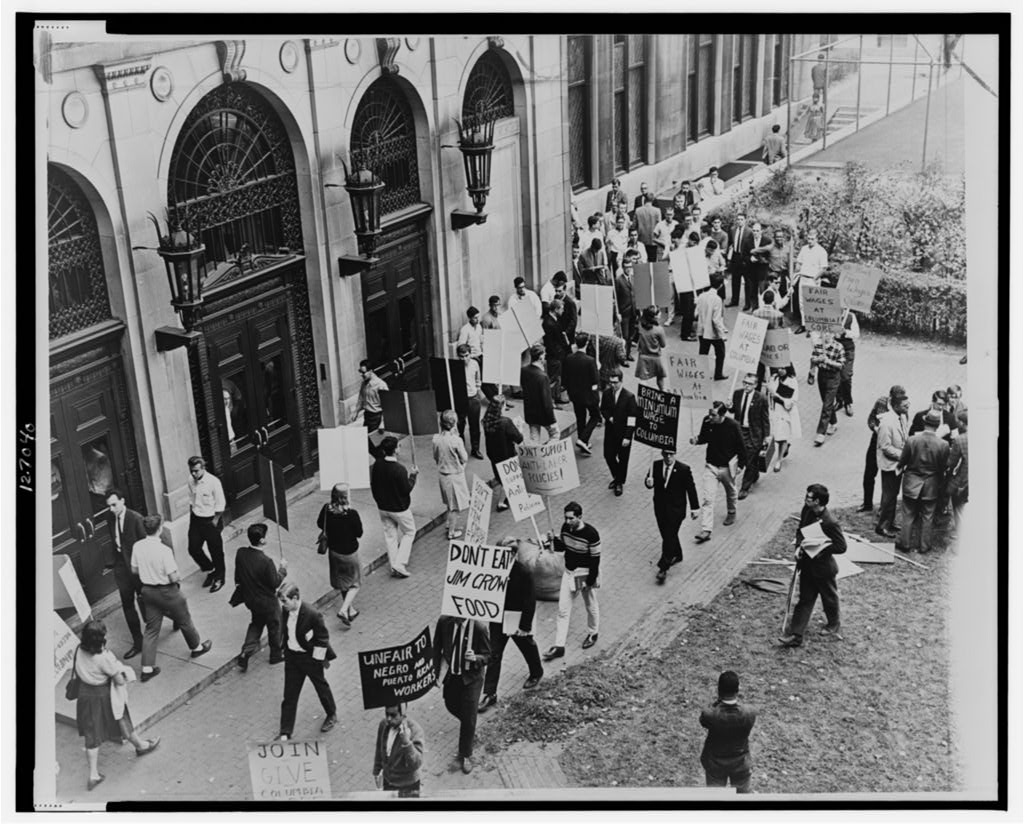
In 1942, non-violent student activists from the University of Chicago—Bernice Fisher, James Russell Robinson, George Houser, James Farmer, Jr., Joe Guinn, and Homer Jack—established the interracial Committee on Racial Equality, which subsequently became the Congress of Racial Equality (CORE). According to the organization’s website, CORE used the teachings of Mahatma Gandhi to protest segregation in public places, organizing sit-ins and picket lines at Chicago restaurants and businesses. Its peaceful protests were the preamble to those that helped end segregation during the 1960s civil rights movement.
1943: The Tuskegee Airmen become the first black flying squadron.
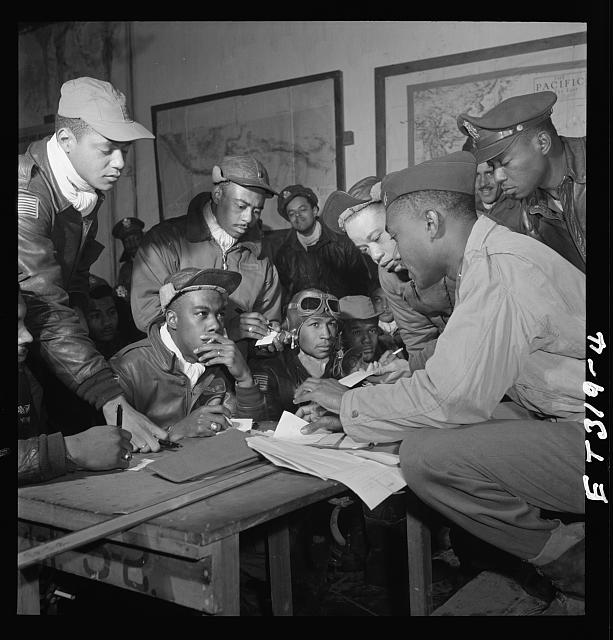
The U.S. military did not allow African Americans to become pilots until 1941, when it created the 99th Fighter Squadron, an experimental crew of African American soldiers who were trained to fly at an airfield near Alabama’s Tuskegee Institute. Known as the Tuskegee Airmen, the squadron flew its first combat mission in June 1943, according to George Washington University, which says the 99th Fighter Squadron completed more than 1,500 missions during World War II. Although the squadron was deactivated in 1946, the Tuskegee Airmen—who collectively earned 150 combat medals—are widely credited with playing a major role in the decision to desegregate the U.S. military in 1948.
1944: Lonnie Smith secures key voting rights for African Americans.
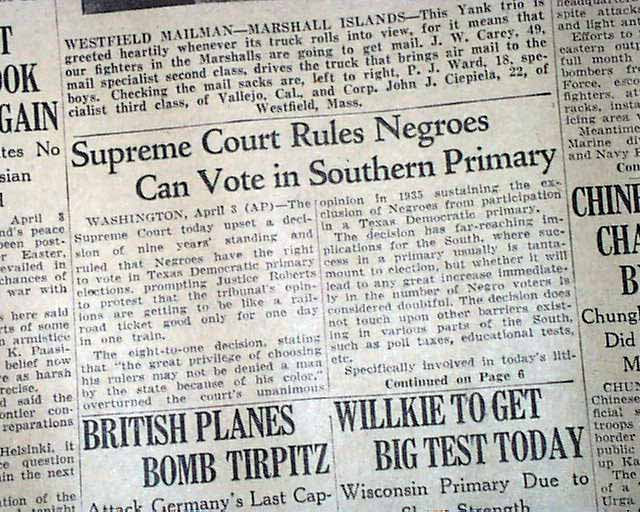
In 1944, black dentist Lonnie Smith of Houston won Smith v. Allwright, a landmark Supreme Court case in which the court ruled that Texas’ whites-only Democratic Party primary was unconstitutional. According to The Battle for the Black Ballot by Charles L. Zelden, Smith decided to sue election judge S. E. Allwright when he was turned away from the polls during Texas’ 1940 Democratic primary election. Because the Democratic party at that time was the sole party in the Lone Star State, primaries were the only elections that really mattered. When the Supreme Court granted Smith his voting rights, it created an important legal precedent that helped secure black voting rights and desegregation nationwide.
1945: John H. Johnson publishes the first issue of Ebony magazine.
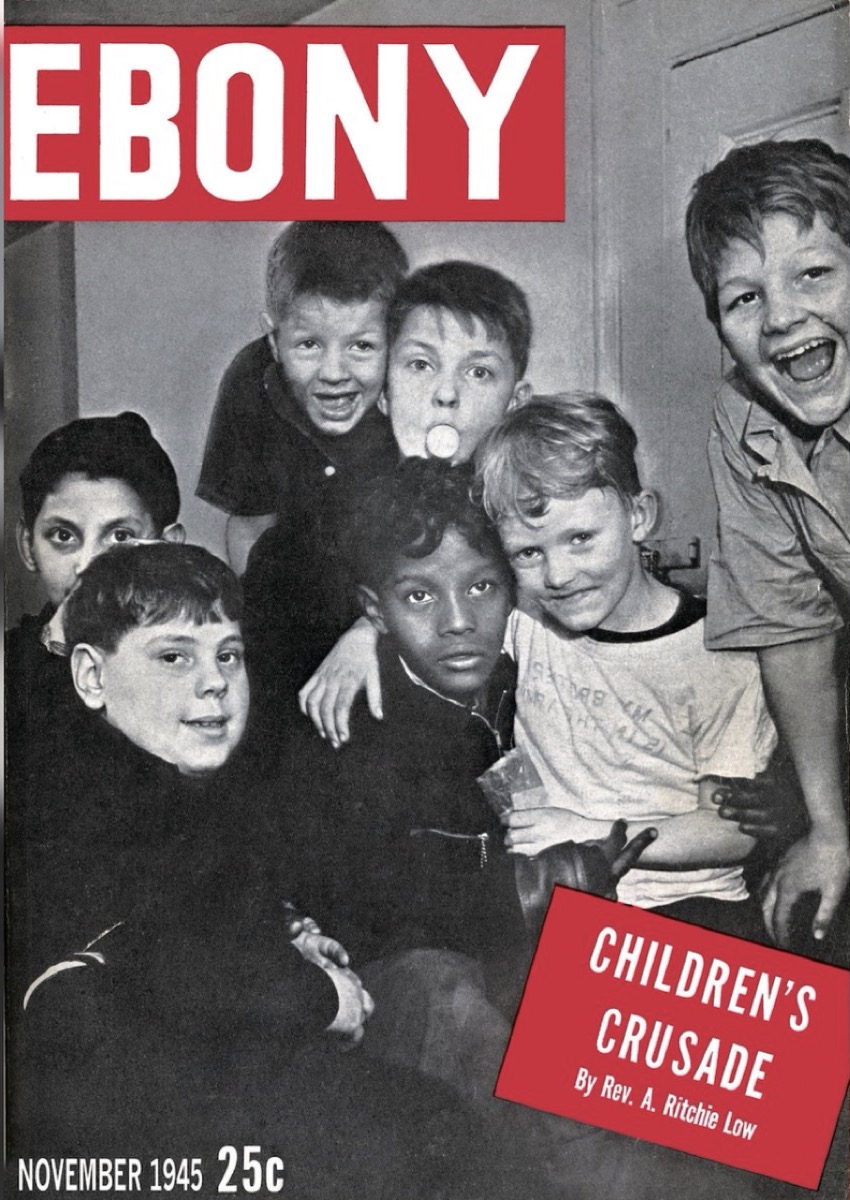
Black businessman John H. Johnson published the inaugural issue of Ebony magazine on Nov. 1, 1945. According to the magazine, celebrating its 75th anniversary in 2020, Ebony and its sister publication, Jet—which published its first issue in 1951—“pioneered the representation of black America in the mainstream media.”
1946: Camilla Williams is the first black woman to secure a leading role with a major American opera.
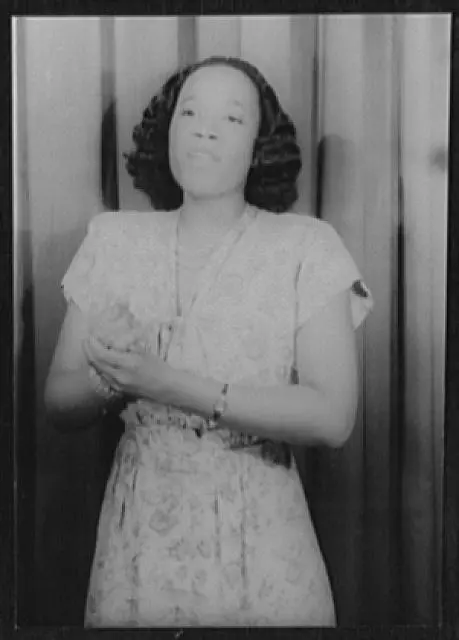
Unknown lyric soprano Camilla Williams was 26 years old when she made her operatic debut as Cio-Cio-San, the tragic heroine of Giacomo Puccini’s Madama Butterfly. Williams was the first-ever black woman to secure a contract with a major U.S. opera company—the New York City Opera. In its obituary for Williams, who died in 2012, The New York Times said her “performance that night, to rave reviews … was a beacon that lighted the way to American opera houses for other black women.”
1947: Jackie Robinson breaks the color barrier in Major League Baseball.

Jackie Robinson signed his first Major League Baseball contract with the Brooklyn Dodgers on Apr. 10, 1947. Less than a week later, he became the first African American to play professional baseball since 1884, when catcher Moses Fleetwood Walker played one season for the Toledo Blue Stockings. Although Walker was America’s first black professional baseball player, African Americans were banned from Major League Baseball when he left the game. The sport remained segregated until the Dodgers recruited Robinson, who, according to the National Baseball Hall of Fame, won the first-ever Rookie of the Year Award. Robinson retired from baseball in 1956 with 947 runs, 734 RBIs, 1,518 hits, and a .311 batting average.
1948: Alice Coachman is the first black woman to win an Olympic gold medal.
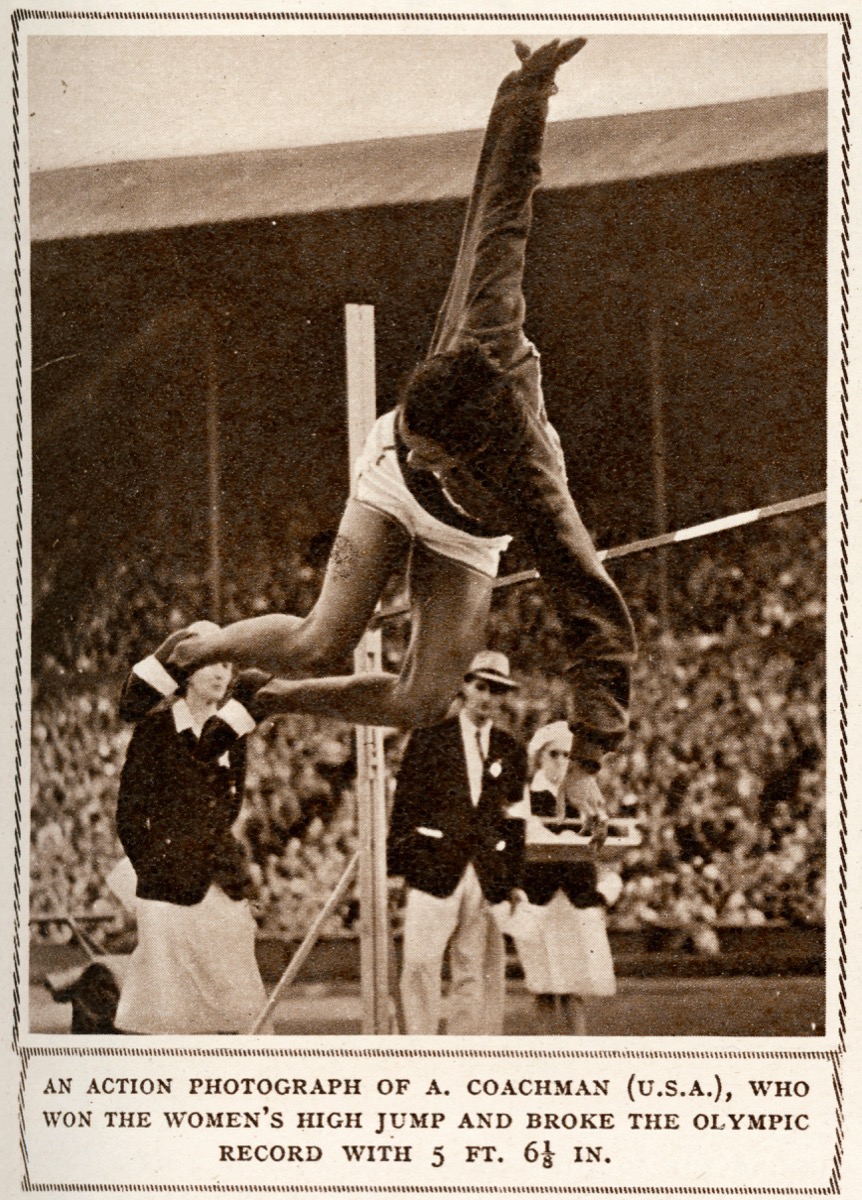
At the 1948 Summer Olympics in London, Audrey “Mickey” Patterson became the first-ever African American woman to earn an Olympic medal, winning a bronze in the 200-meter dash. A day later, Alice Coachman won a gold medal in track and field; according to the International Olympic Committee, her gold medal was the first not only for an African American woman, but for a black woman period—from any country. What’s more, Coachman was the only American woman to win a gold medal at the 1948 Olympics. In 1952, she earned one more distinction when she became a spokesperson for Coca-Cola, making her the first black female athlete to endorse an international consumer product.
1949: Jesse Blayton establishes WERD-AM, the first black-owned radio station.

In 1928, Jesse B. Blayton, Sr. of Atlanta became the first African American CPA in the state of Georgia. Nineteen years later, while he was a professor at Atlanta University, he broke another barrier by purchasing WERD, a small radio station that became the first-ever black-owned radio station when he acquired it in 1949. According to CNN, WERD was the medium of choice for the Rev. Martin Luther King, Jr., who used the station to broadcast his sermons and, later, to spread the word about his civil rights marches. “WERD … offered a rare public venue for black jazz and blues performers during the Jim Crow era, and amplified the voices of King and other African American leaders as they encouraged black citizens to vote,” according to CNN.
1950: Ralph Bunche is the first African American recipient of the Nobel Peace Prize.
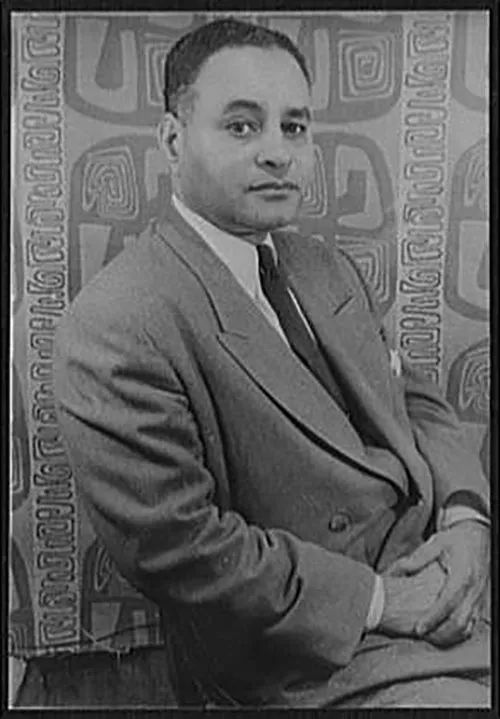
Self-described “incurable optimist” Ralph Bunche was a Harvard professor-turned-diplomat who worked for the United Nations shortly after it was chartered in 1945. In the wake of World War II—from 1947 until 1949—he was tasked to broker a peace deal between the newly created state of Israel and the Arab nations that surrounded it. His success earned him the 1950 Nobel Peace Prize, making him the first person of color to receive the award, according to the United Nations.
1951: Janet Collins is the first black prima ballerina.
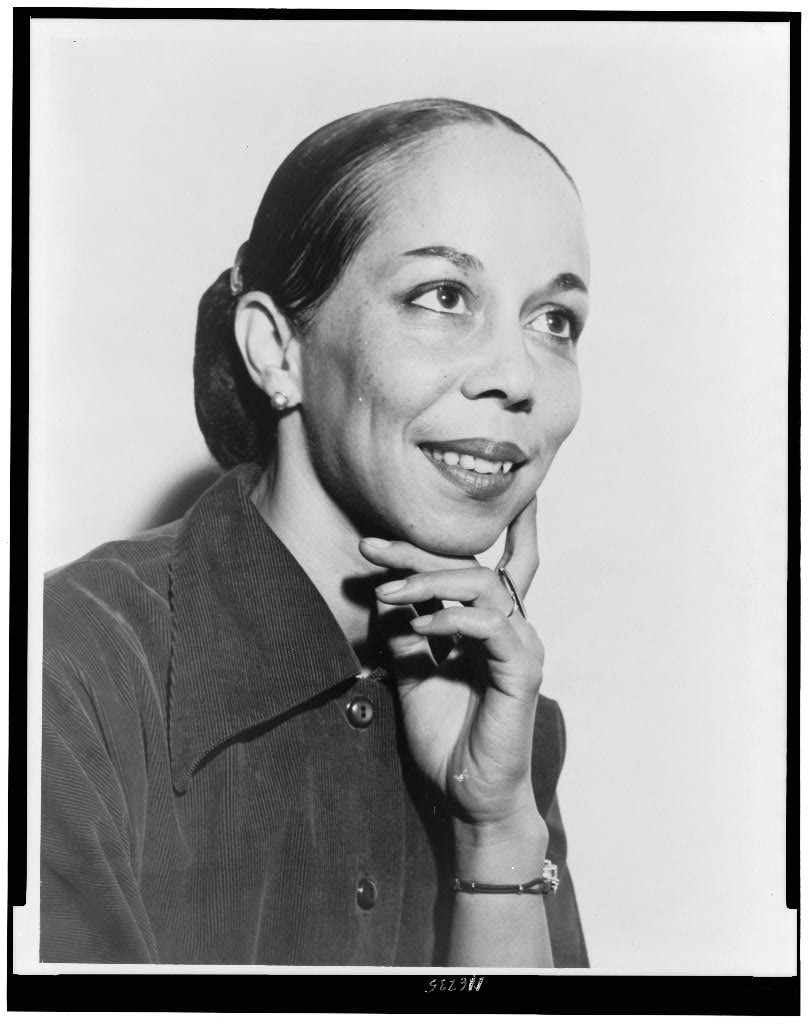
In 1951, New York’s Metropolitan Opera recruited black dancer Janet Collins, making her the first-ever African American prima ballerina. Collins—who had lead roles in Met productions of Aida, Carmen, La Gioconda, and Samson and Delilah—made her New York debut in 1949, when she danced her own choreography during a shared program at the 92nd Street Y. According to her 2003 obituary in The New York Times, the paper’s dance critic at the time called Collins “the most exciting young dancer who has flashed across the current scene in a long time.”
1952: Ralph Ellison publishes Invisible Man.

The novel Invisible Man tells the story of a nameless black narrator who moves from the rural South to New York City, seeking freedom and a sense of self as an African American man in predominantly white America. Its author, Ralph Ellison, published the book in 1952 and earned the prestigious National Book Award for it a year later. Time magazine included the book on its list of the “100 Best Novels of the 20th Century,” calling it “the quintessential American picaresque of the 20th century.”
1953: Hulan Jack is the first black borough president of Manhattan.
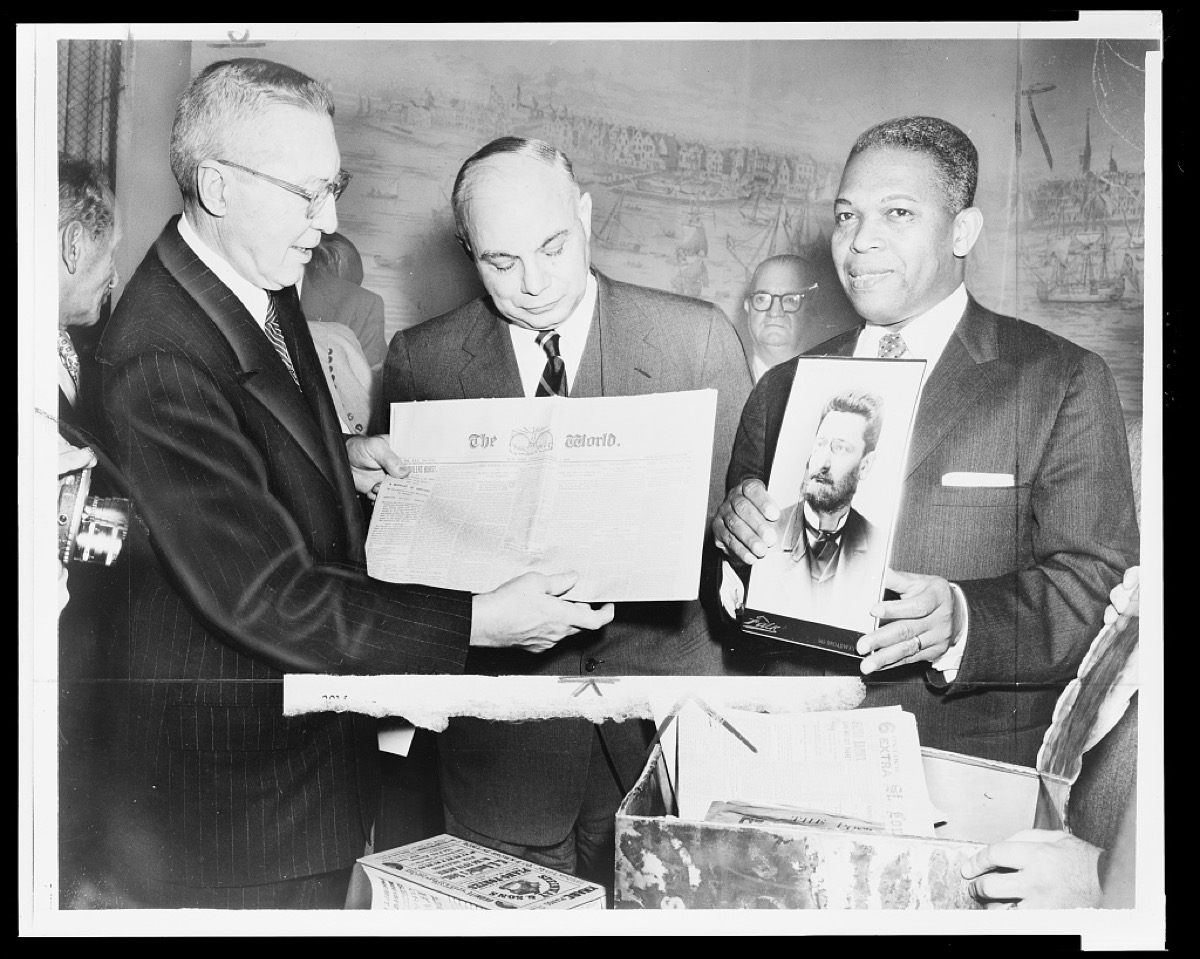
When he won the race to become Manhattan borough president in 1953, Hulan Jack became the first black “boss of Manhattan,” according to The New York Times, which called his election a “watershed moment” in African American history. At the time, Jack was the highest ranking black elected official in the nation.
1954: Oliver Brown wins Brown v. Board of Education.
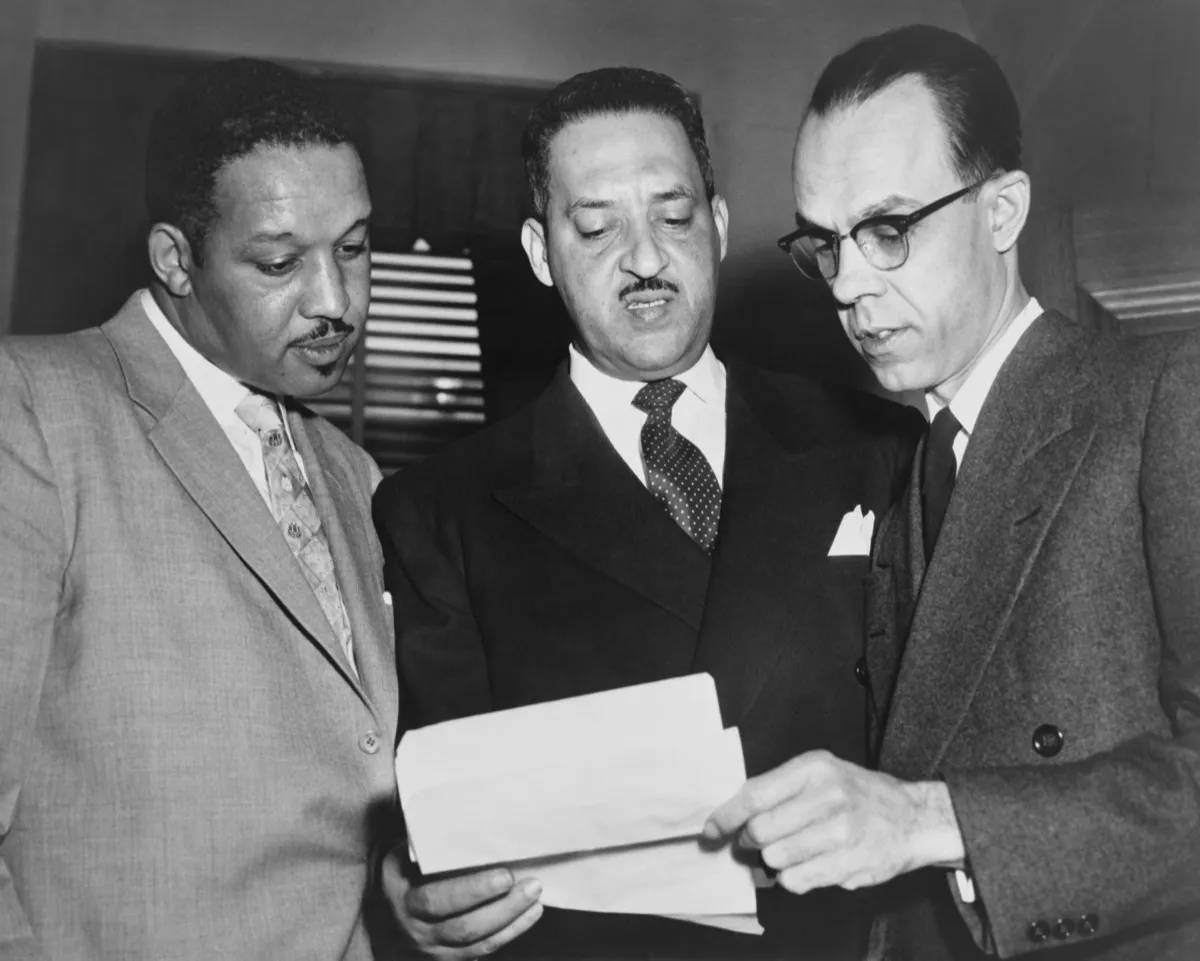
In Sept. 1950, Oliver Brown—a pastor and railroad worker—attempted to enroll his 7-year-old daughter in an all-white elementary school near his home in Topeka, Kansas. When the school denied his request, the NAACP filed a federal lawsuit on his behalf against the Topeka Board of Education. The landmark case, Brown v. Board of Education, made it all the way to the U.S. Supreme Court, which made history in 1954 when it ruled in Oliver’s favor, declaring “separate but equal” unconstitutional and ending decades of segregation in American public schools.
1955: Rosa Parks refuses to relinquish her bus seat to a white man.

On Dec. 1, 1955, civil rights activist Rosa Parks was arrested in Montgomery, Alabama, for refusing to relinquish her seat on a public bus to a white man, as required by Alabama law. According to the Library of Congress, her courageous act of defiance commenced the Montgomery Bus Boycott, a 381-day boycott of the Montgomery bus system that ultimately led to a 1956 U.S. Supreme Court ruling that ended segregation on public transportation.
1956: Nat King Cole becomes the first African American to host a prime time variety show on national television.
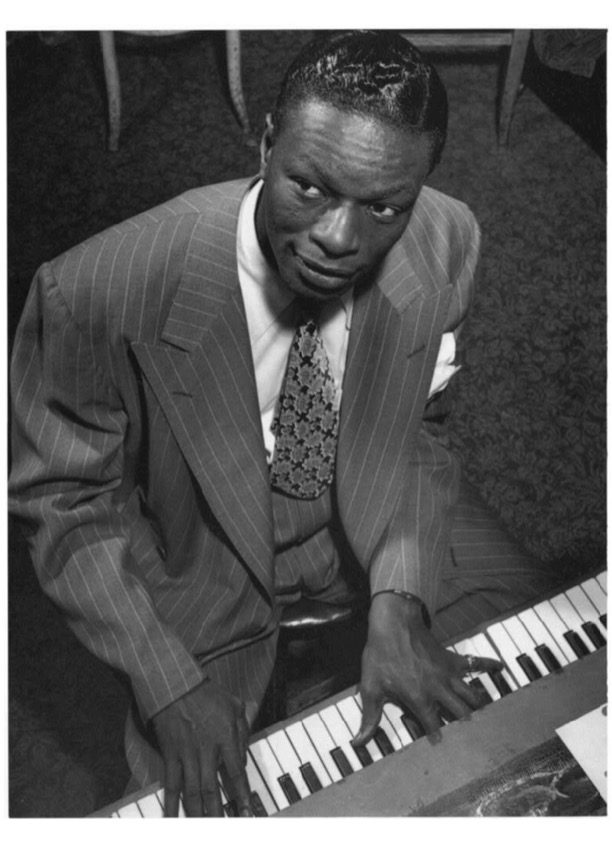
Celebrated songster Nat “King” Cole was one of the most acclaimed jazz pianists and vocalists of the 20th century. Although he’s best known for his timeless hits—including the classic “Unforgettable”—the beloved baritone also had his own nationally televised variety show, The Nat King Cole Show, which debuted on NBC in 1956. The show was the first program of its kind to be hosted by an African American, according to NPR, which reports that Cole’s presence in white living rooms “challenged segregation on television and in American society.”
1957: Althea Gibson is the first black tennis player to win Wimbledon.
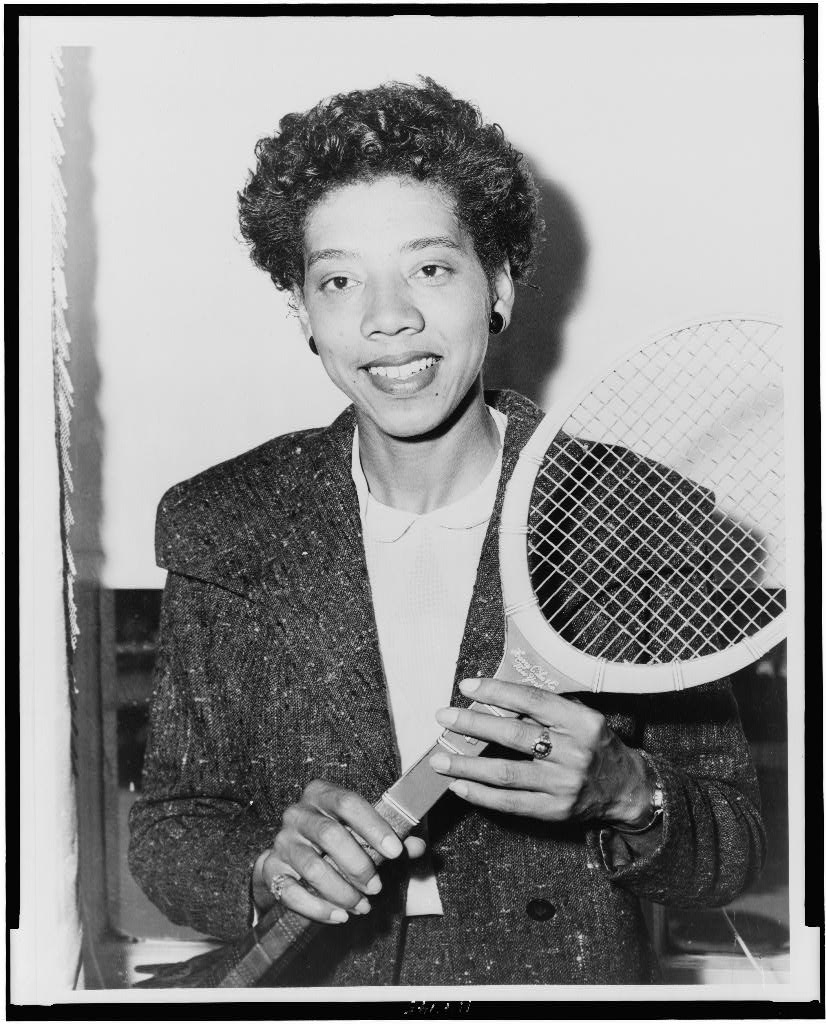
London’s annual grand slam tennis tournament, Wimbledon, is the oldest, largest, and most prestigious tennis championship in the world. On July 6, 1957, African American tennis player Althea Gibson won it, becoming the first black tennis player—male or female. At the time, The New York Times wrote that Gibson “fulfilled her destiny … and became the first member of her race to rule the world of tennis.” Gibson had already broken several racial barriers in her sport; in 1950, for example, she became the first black tennis player to compete in the U.S. Open, and at the French Open in 1956, she became the first black player to win a grand slam.
1958: Ruth Carol Taylor is America’s first black flight attendant.
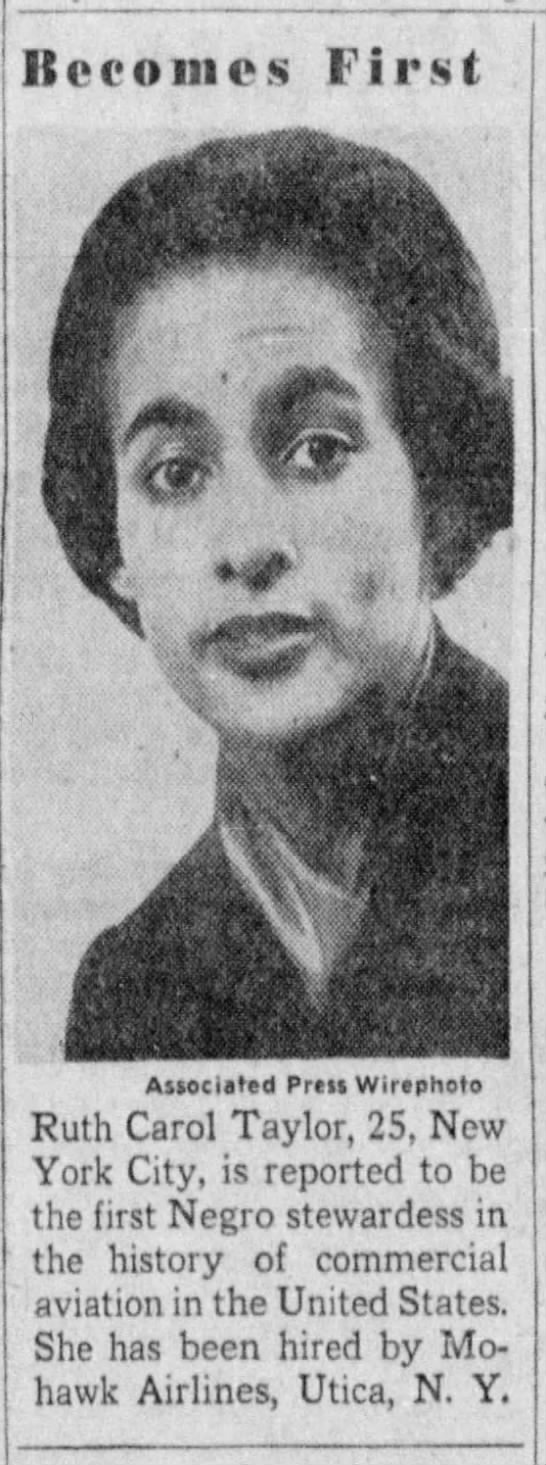
Ruth Carol Taylor took black America to new heights—literally—in 1958, when she became the first African American flight attendant in the United States. A nurse and activist, Taylor wanted to challenge the discriminatory hiring practices of American airlines, according to St. Louis-based R&B radio station 95.5 The Lou. In an article about her, the broadcaster notes Taylor originally applied to work for Trans World Airlines (TWA), but was rejected. She subsequently sought a job with regional start-up Mohawk Airlines, which selected her from a pool of 800 applicants.
1959: Berry Gordy, Jr. founds Motown Records.
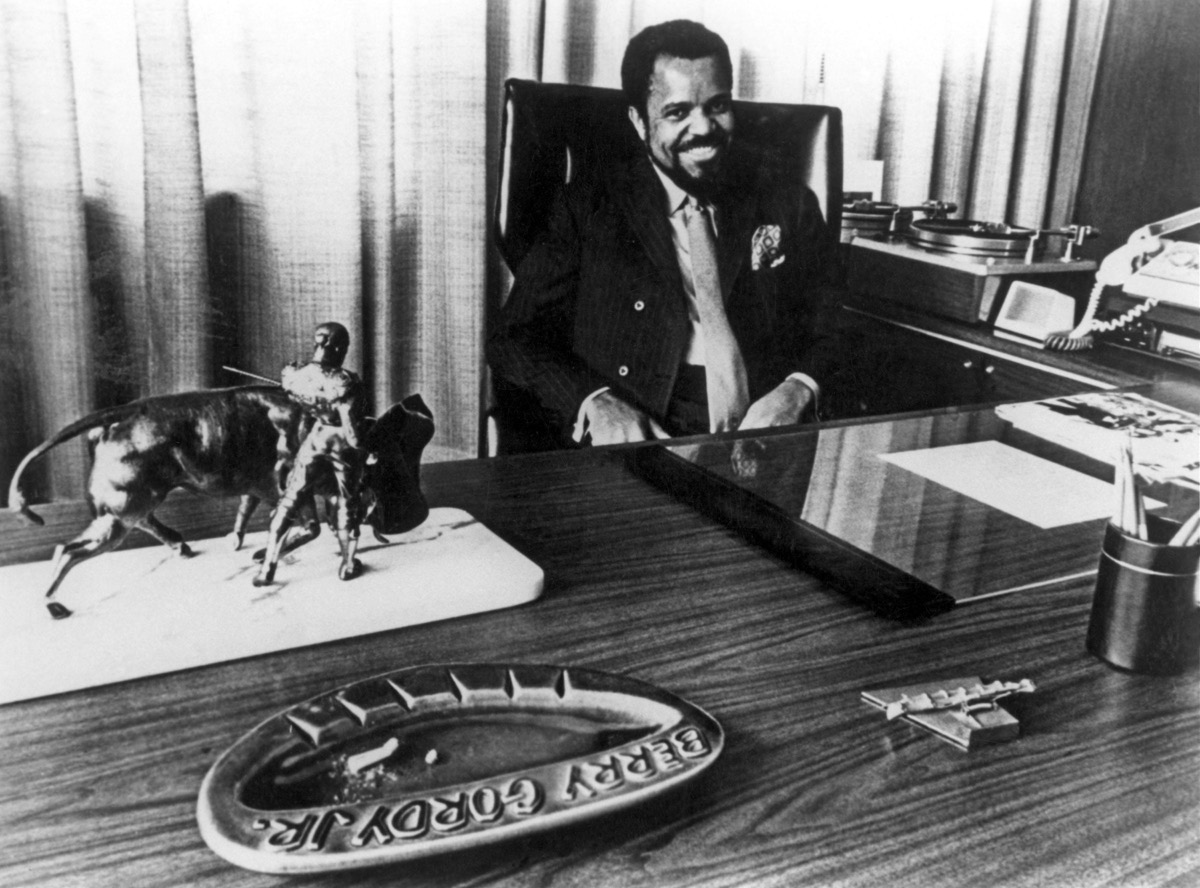
African American history resides not only in history books, but also in songbooks—many of which belong to Motown Records, the black-owned record label behind iconic African American artists like Marvin Gaye, The Temptations, The Supremes, Smokey Robinson, and Stevie Wonder. The man responsible for all of them, former boxer Berry Gordy, Jr., established Motown Record Corp.—originally known as Tamla Records—in Detroit in 1959, using an $800 loan from his family.
1960: The Greensboro Four stage the first sit-in of the civil rights movement.
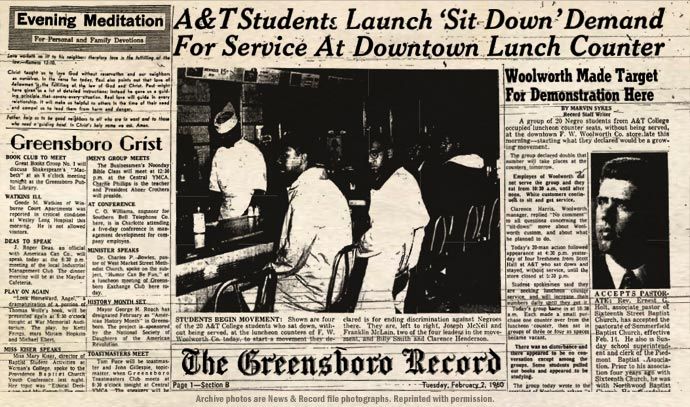
On Feb. 1, 1960, four African American college students—Ezell Blair, Jr., David Richmond, Franklin McCain, and Joseph McNeil, who henceforth became known as “the Greensboro Four”—helped ignite the civil rights movement when they staged its first sit-in at a segregated Woolworth’s lunch counter in Greensboro, South Carolina. Their act led to a six-month local protest that culminated in the lunch counter’s desegregation on July 25. The counter itself now resides in the National Museum of American History in Washington, D.C.
1961: Ernie Davis is the first black recipient of college football’s Heisman Trophy.
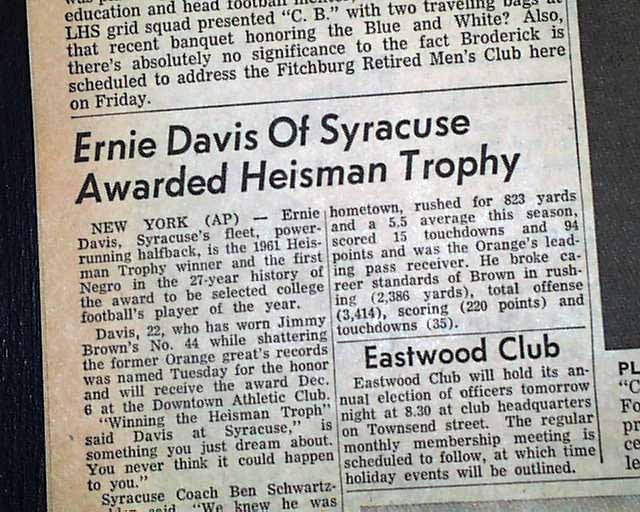
Black running back Ernie Davis from Elmira, New York, made history as the first African American athlete to receive college football’s Heisman Trophy, awarded annually to the sport’s best player. During his career at Syracuse University, he rushed 2,386 yards and scored 35 touchdowns. After college, in 1962, he became the first African American to be picked first during the NFL draft when he was selected by the Washington Redskins; the Redskins immediately traded him to the Cleveland Browns, with whom he signed a three-year contract worth $80,000—at that time, the largest sum ever given to an NFL rookie, according to ESPN.
1962: James Meredith is the first black student at Ole Miss.
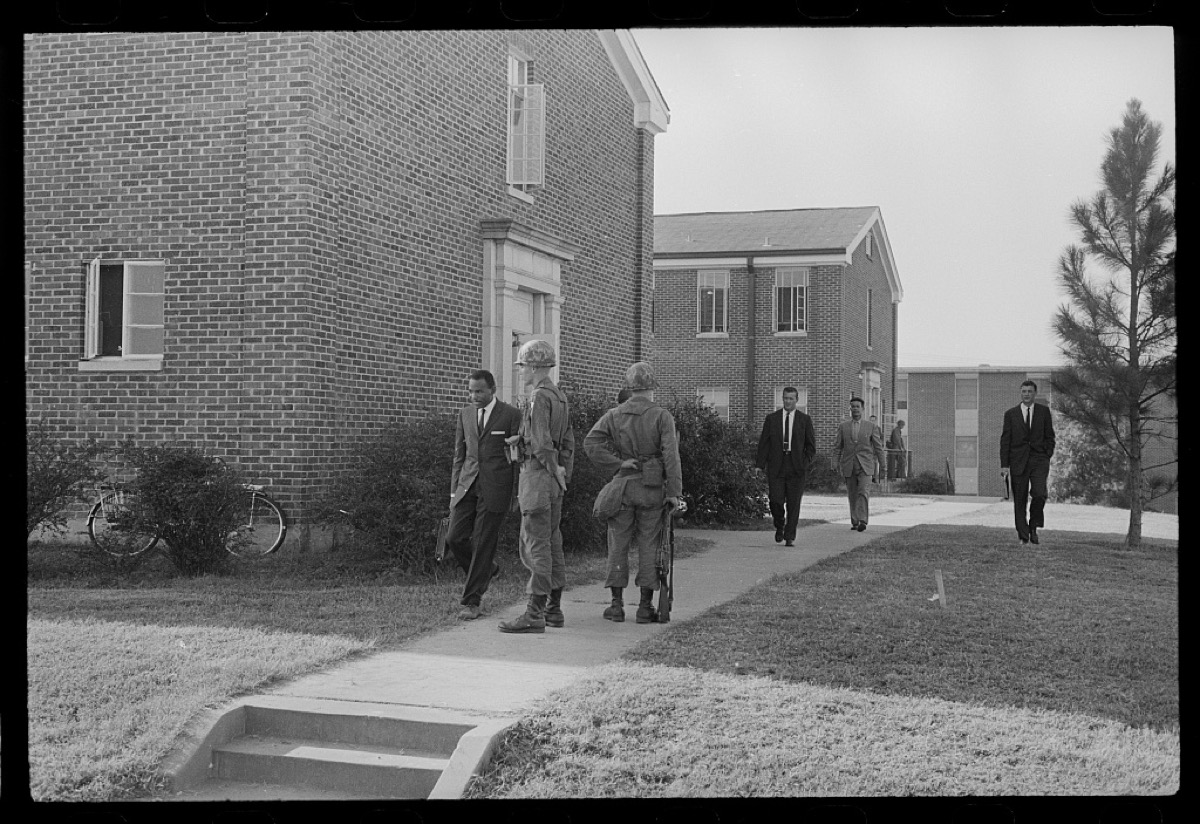
In 1960, Mississippi college student James Meredith decided to challenge racial segregation at the all-white University of Mississippi, AKA “Ole Miss.” Although the university twice rejected his application, the NAACP sued the school on Meredith’s behalf, ultimately taking his case to the U.S. Supreme Court, which ruled in his favor. When school and state officials subsequently resolved to defy the courts, President John F. Kennedy sent U.S. troops to the university’s campus in Oxford, Mississippi, where they protected Meredith while clashing with mobs of angry protestors. Despite the violent riots, Meredith officially became the first black student to enroll at Ole Miss on Oct. 2, 1962. According to a biography by the National Portrait Gallery, he graduated a year later with a degree in political science and “hero” status in the civil rights movement.
1963: Martin Luther King, Jr. delivers his “I Have a Dream” speech.

On Aug. 28, 1963, Martin Luther King, Jr. spoke the most iconic words of the civil rights movement: “I have a dream…” King delivered his famous speech at the Lincoln Memorial in Washington, D.C., where approximately 250,000 people had gathered for the 1963 March on Washington for Jobs and Freedom. What many people don’t realize is that while the first half of King’s historic speech was written ahead of time, the latter half—in which King declares his dreams for an equal America—was entirely improvised.
1964: Sidney Poitier is the first African American to win an Academy Award for Best Actor.
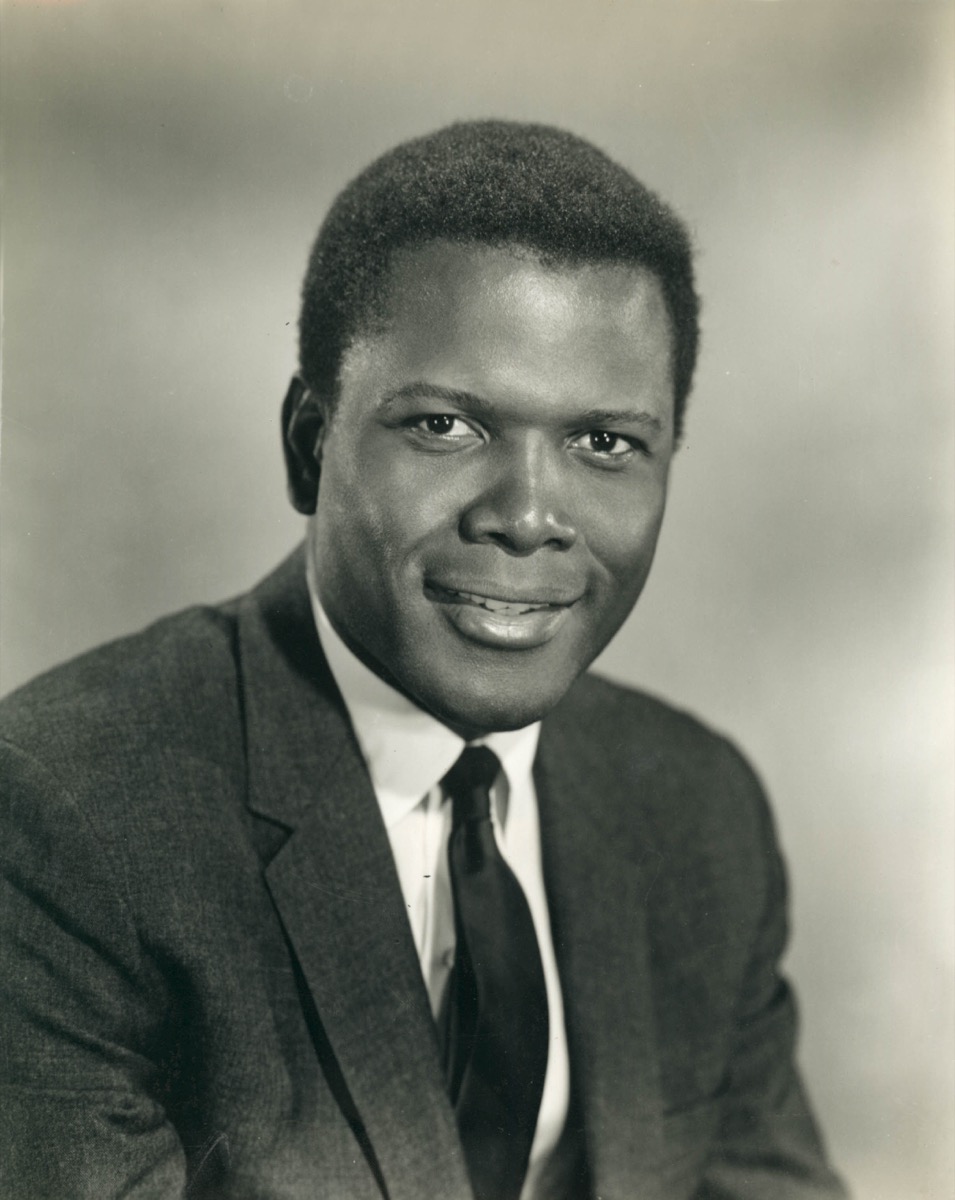
In 1964, Sidney Poitier became the first black actor to win an Oscar in the Best Actor category, earning the award for his portrayal of handyman Homer Smith in the 1963 film Lilies of the Field. Fifty years later, USA Today called Poitier “one of black film’s most important stalwarts” and his win “one of the most important moments in Academy Awards history.”
1965: James Bevel organizes the Selma-to-Montgomery March.
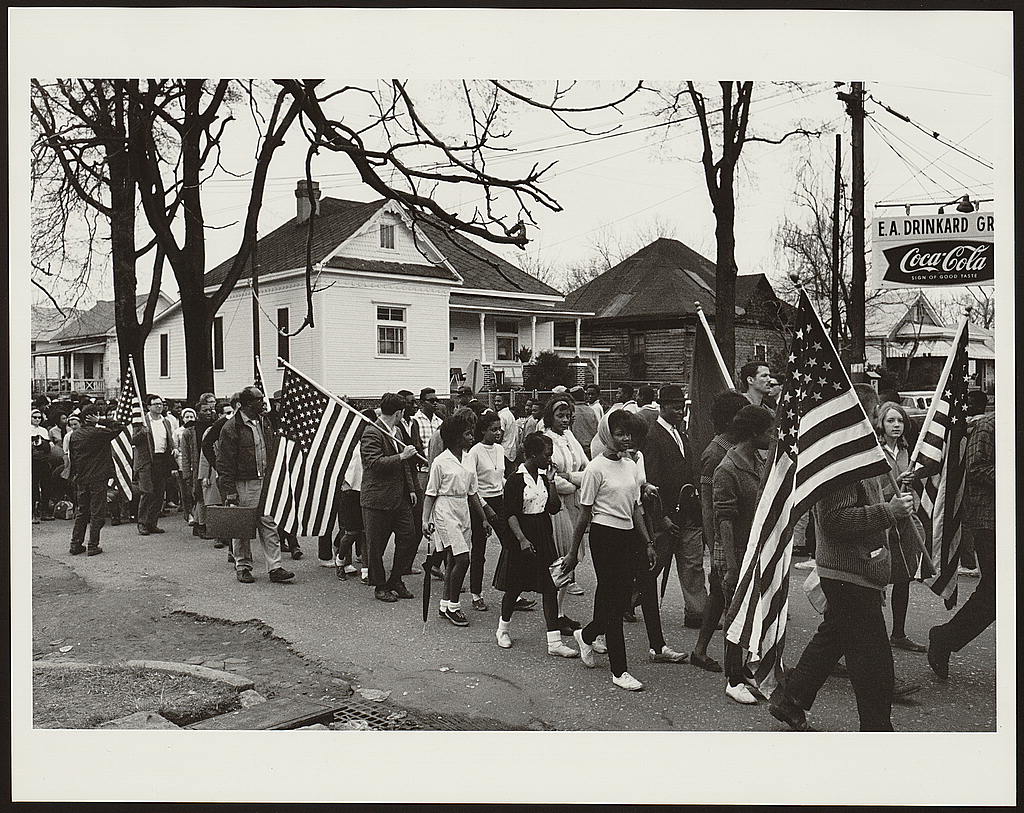
On Feb. 26, 1965, civil rights activist Jimmie Lee Jackson was beaten and killed by a state trooper during a peaceful voting rights march in Marion, Alabama. The act of senseless violence inspired the Rev. James Bevel—an adviser to Martin Luther King, Jr. and a civil rights organizer for the Southern Christian Leadership Conference (SCLC)—to organize one of the most significant events of the civil rights movement: the Selma-to-Montgomery March, which Bevel proposed during a passionate sermon at a memorial service for Jackson. Following Bevel’s call to action, thousands of peaceful protesters made the 54-mile march from Selma to Montgomery on three separate occasions. Despite violence, including the “Bloody Sunday” clash with law enforcement that took place during the first march, their mission—to draw attention to the denial of black voting rights—succeeded that summer when President Lyndon B. Johnson signed the Voting Rights Act of 1965.
1966: Edward Brooke is the first popularly elected black senator.

The first African American to serve in either chamber of Congress was Hiram Revels of Mississippi, who was elected to the U.S. Senate in 1870, at which time senators were chosen by state legislatures. The second black senator—Blanche Bruce, also of Mississippi—was elected in a similar manner in 1875. The senate’s third African American, Edward Brooke of Massachusetts, wasn’t elected until nearly a century later, in 1966. By then, senators were elected by their constituents. That made Brooke, who served from 1967 until 1979, the first African American elected to the U.S. Senate by popular vote.
1967: Thurgood Marshall is the first black justice on the Supreme Court.

On Oct. 2, 1967, Thurgood Marshall was sworn in as the first-ever African American justice to serve on the U.S. Supreme Court. The son of a railroad porter and a schoolteacher, Marshall had previously helped engineer the end of racial segregation as chief counsel of the NAACP, a position in which he himself argued more than a dozen cases before the Supreme Court—including the landmark civil rights case Brown v. Board of Education. Marshall served on the court for 24 years, during which time he “challenged bias in all its forms,” according to Politico.
1968: Shirley Chisholm is the first African American woman elected to Congress.
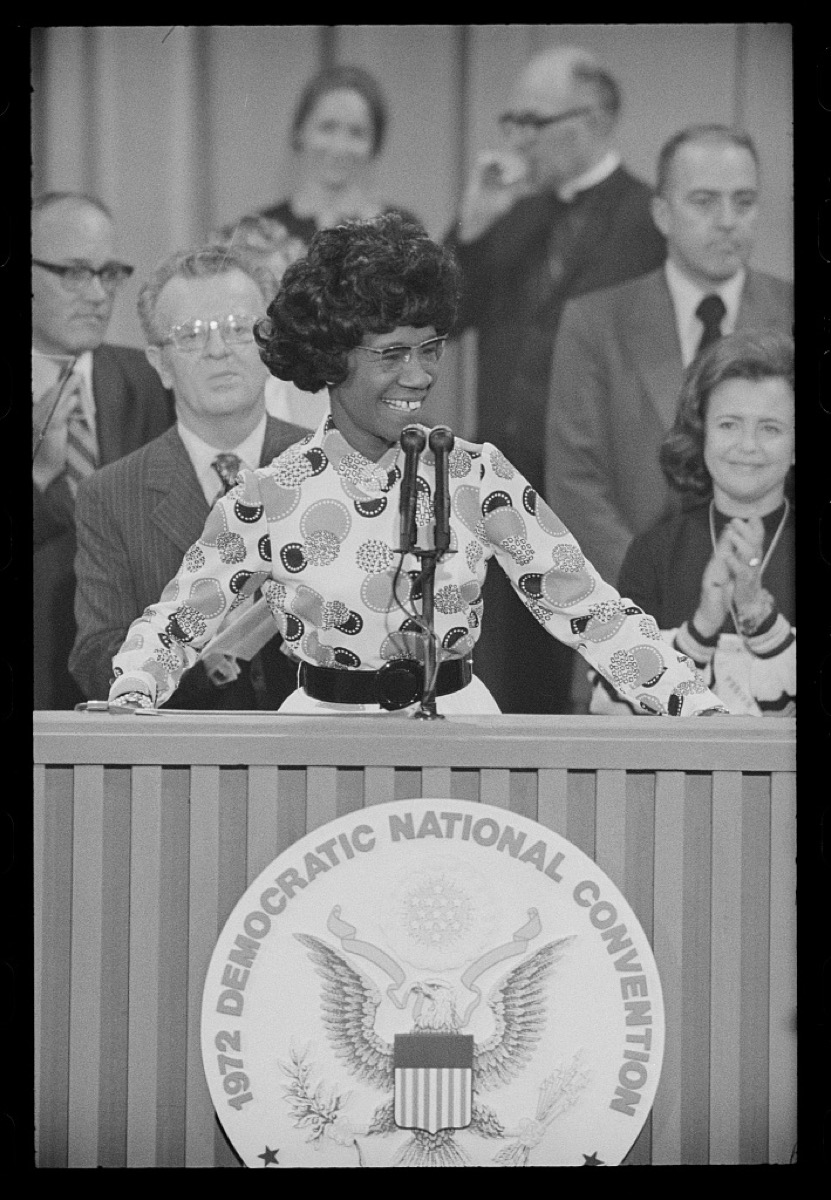
Shirley Chisholm is an icon for gender equality and racial equality. A former nursery school teacher, she became the first African American woman in Congress in 1968, when she was elected to represent Brooklyn, New York, in the U.S. House of Representatives. Chisholm—who served in Congress from 1969 until 1983—co-founded the National Women’s Political Caucus in 1971, and in 1972, became both the first African American and the first woman to seek the nation’s highest office when she announced her candidacy for president of the United States. According to Smithsonian Magazine, Chisholm wanted to be remembered “not as the first black woman to have made a bid for the presidency … but as a black woman who lived in the 20th century and who dared to be herself.”
1969: Jimi Hendrix headlines the Woodstock Musical Festival.
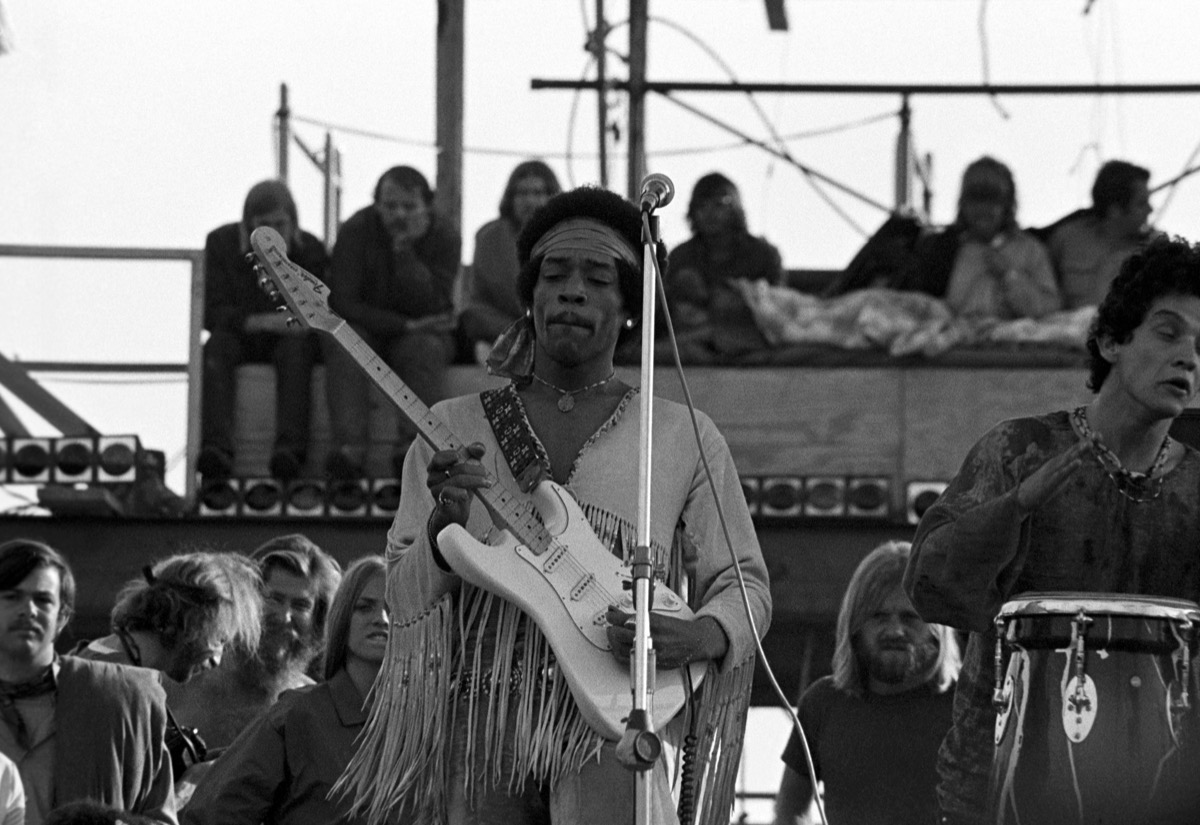
No event looms larger in the tomes of music history than the Woodstock Music & Art Fair, a three-day music festival whose mission was celebrating peace, love, and rock ‘n’ roll. By most accounts, the highlight of the festival—which took place on a dairy farm in Bethel, New York, in Aug. 1969—was Jimi Hendrix’s performance of “The Star-Spangled Banner,” which Salon calls “one of the most powerful, searing renditions of the national anthem ever recorded.” Hendrix, whose historic rendition was the culmination of an hour-long performance at the end of the festival, was inducted into the Rock & Roll Hall of Fame in 1992, and in 2011, was named “The Greatest Guitarist of All Time” by Rolling Stone.
1970: Clifton Wharton, Jr. is the first black president of a mostly white university.
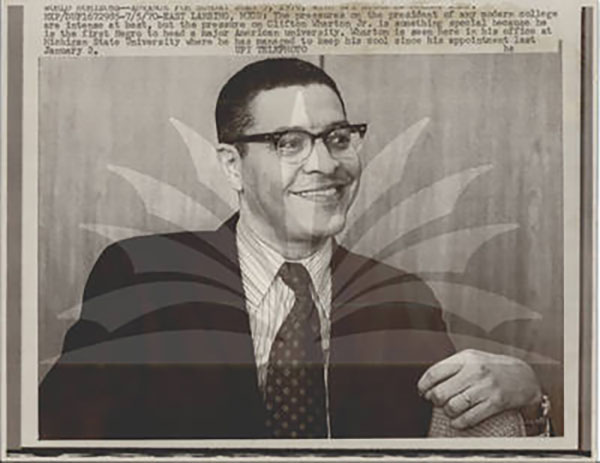
On Jan. 2, 1970, Clifton Wharton, Jr., PhD, became the 14th president of Michigan State University, making him the first African American to lead a major, predominantly white university. According to BlackPast, Wharton also was the first African American to receive a PhD in economics from the University of Chicago, in 1958; the first African American chancellor of the State University of New York system, in 1978; and the first African American head of a Fortune 500 company, TIAAA-CREF, in 1987.
1971: Johnson Products Company is the first black-owned business on the American Stock Exchange.

In 1954, husband-and-wife team George and Joan Johnson established Chicago-based Johnson Products Company, which makes hair-care and cosmetics products for African American consumers under the popular brands Ultra Sheen, Afro Sheen, and Classy Curl. In 1971, the company was listed on the American Stock Exchange, becoming the first black-owned business to trade on the exchange. According to the National Museum of American History, Johnson Products that same year became the first black company to sponsor a nationally syndicated television show, the African American music-dance program Soul Train.
1972: Wilt Chamberlain is the first professional basketball player to score 30,000 points.
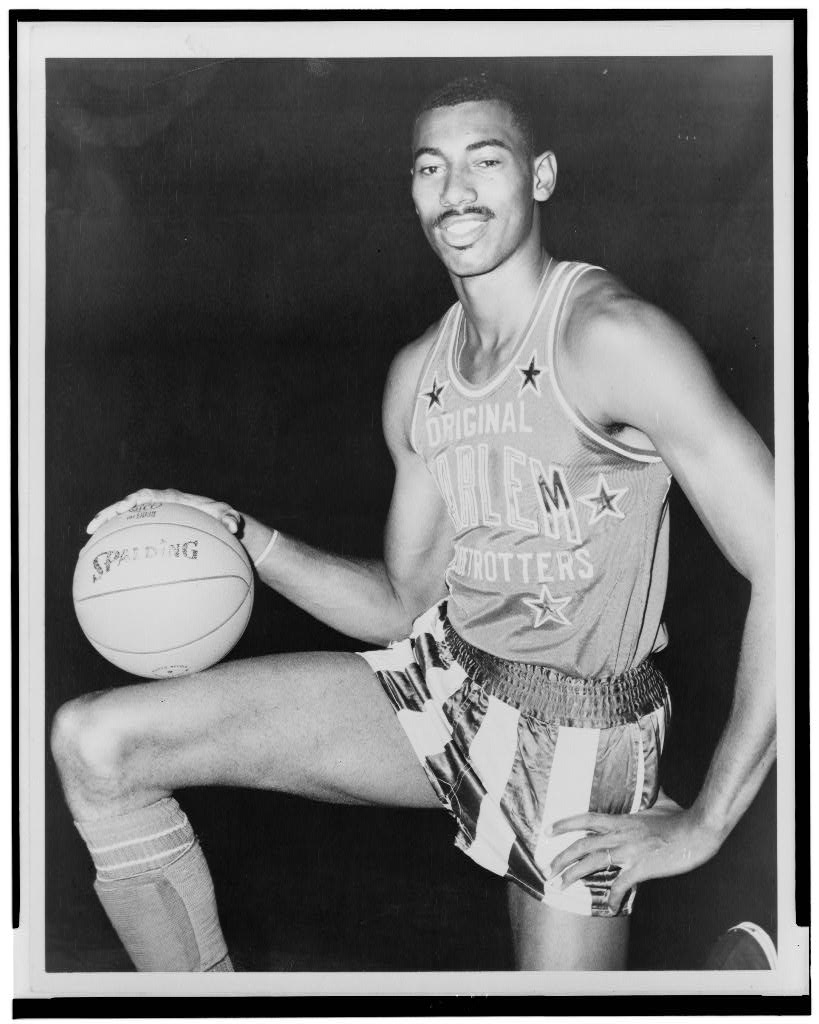
On Feb. 16, 1972, Wilt Chamberlain of the Los Angeles Lakers became the first professional basketball player to score over 30,000 points during his career. Although his total was subsequently surpassed by Kareem Abdul-Jabbar, Karl Malone, and Michael Jordan, the beloved center—who Lakers Nation calls “the most dominant force the league has ever seen”—retired with a record 31,419 career points. According to the NBA, Chamberlain still holds the record for the most points scored in a single game: 100.
1973: Tom Bradley is the first black mayor of a predominantly white city.
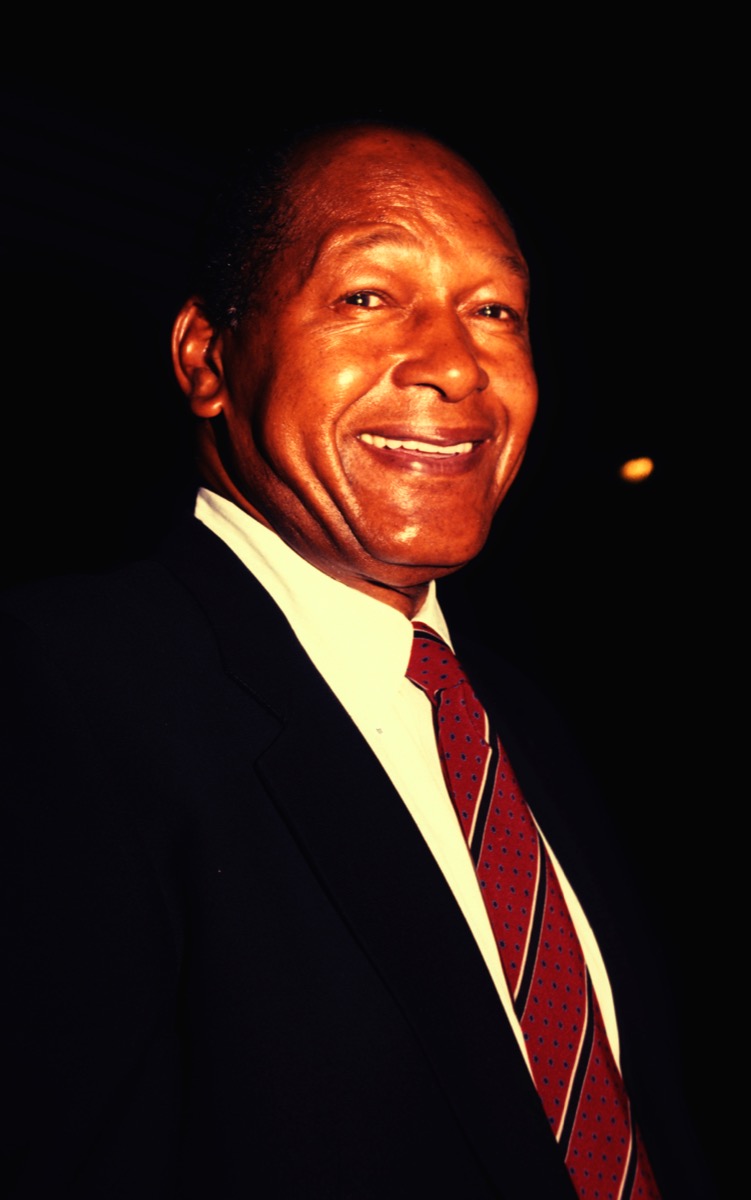
On May 29, 1973, Los Angeles voters elected their first—and so far, only—black mayor: Tom Bradley, who became the first-ever black leader of a predominantly white U.S. city. A former police officer who had achieved the rank of lieutenant, making him the highest-ranking African American police officer of his time, Bradley was reelected four times, serving from 1973 to 1993—longer than any other mayor in history, according to the California African American Museum. Atlanta and Detroit also elected their first black mayors in 1973: Maynard Jackson and Coleman Young, respectively.
1974: Beverly Johnson is the first black woman on the cover of American Vogue.
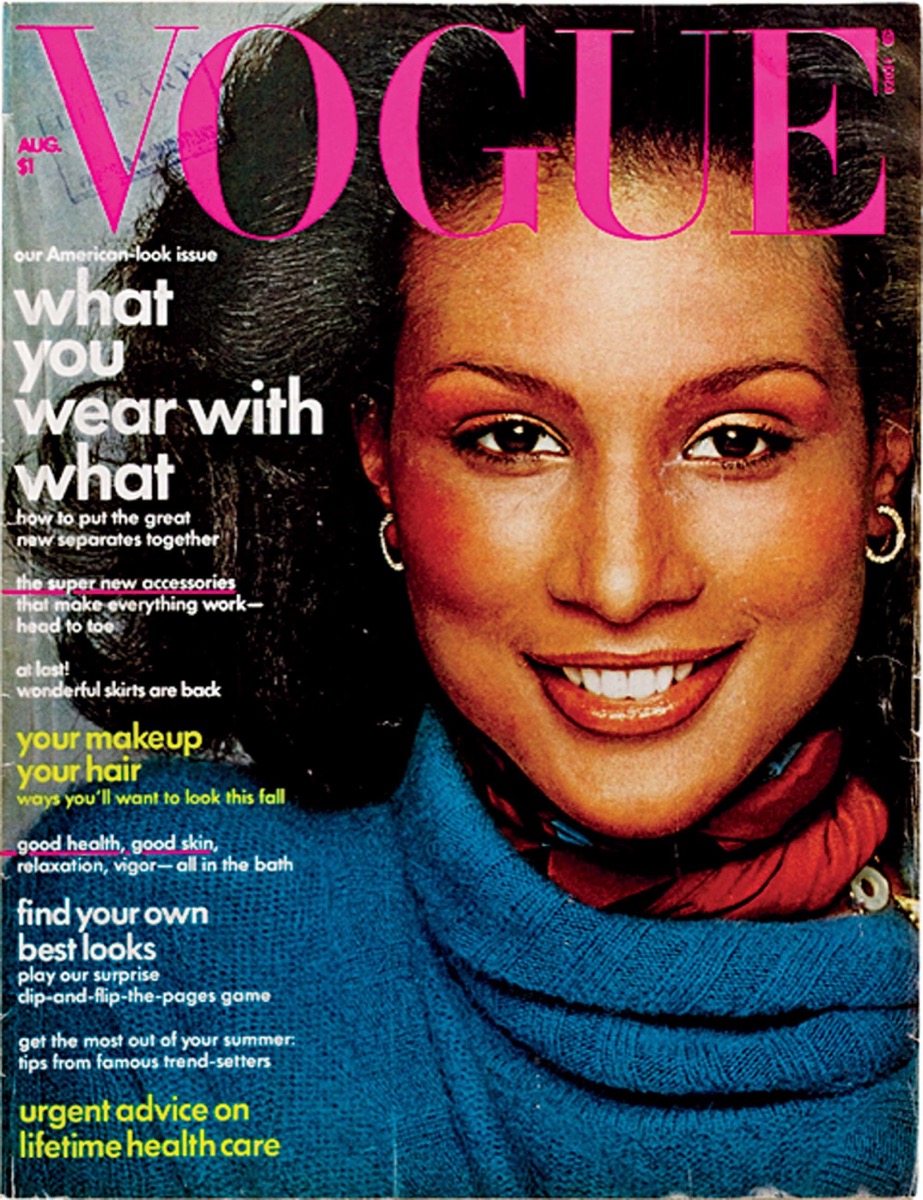
Beverly Johnson was the first-ever African American supermodel. She began her modeling career when she appeared on the cover of Glamour in 1971—three years after Katiti Kironde, who became the first black woman to appear on the cover of a major fashion magazine when she graced Glamour’s cover in 1968. Although Johnson subsequently appeared on the cover of Glamour numerous times, what ultimately elevated her status to that of “supermodel” was her 1974 appearance as the first black woman on the cover of Vogue, which the magazine itself calls “a landmark moment.” “It had taken more than eight decades, but finally a person of color was fronting the world’s foremost fashion magazine,” Janelle Okwodu wrote in a 2016 Vogue profile of Johnson.
1975: Lee Elder is the first African American to play in the U.S. Masters.
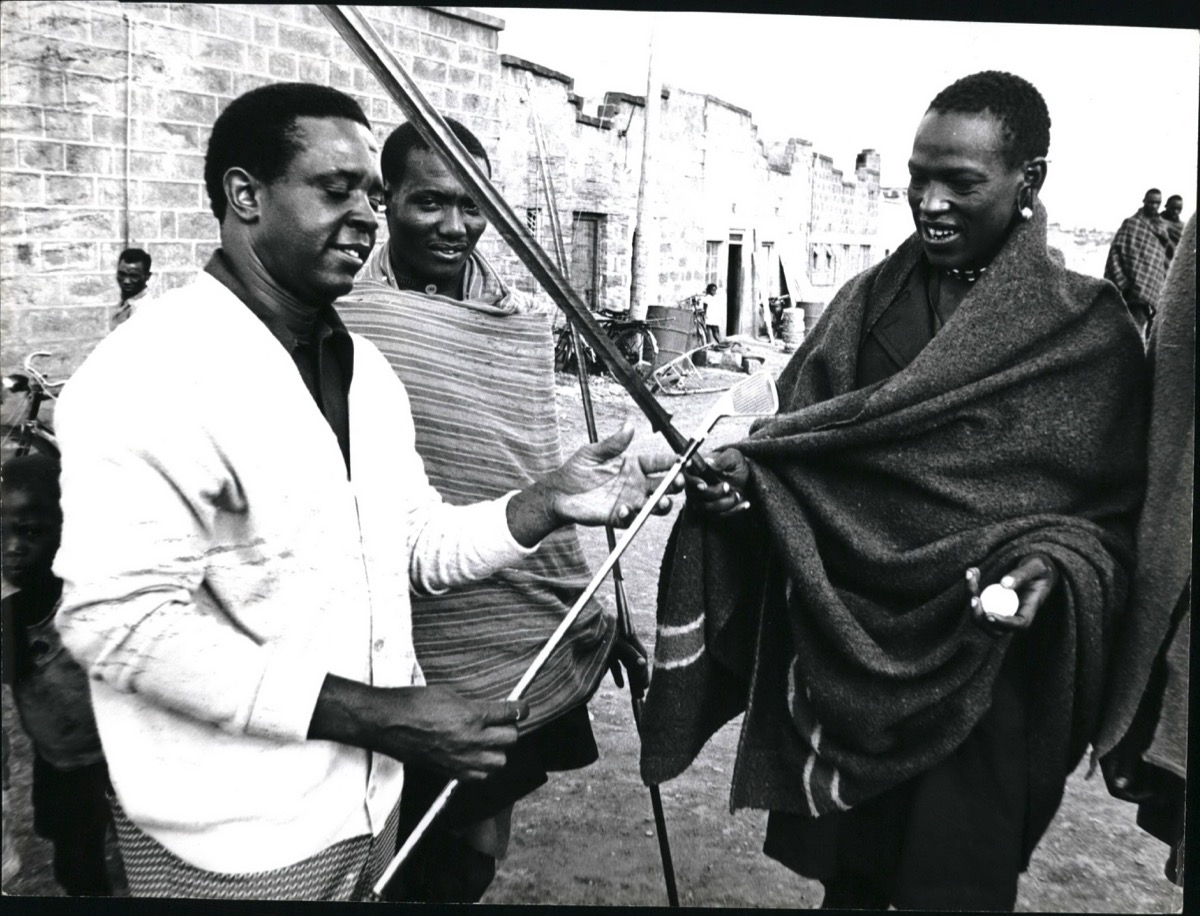
Long before there was Tiger Woods, there was Lee Elder, who in 1975 became the first black golfer to play in the U.S. Masters tournament. “It was one of the last color barriers in U.S. sport,” the BBC reported in a 2015 profile of Elder, who reportedly received death threats when he qualified for the tournament. Although he didn’t qualify for the final rounds, Elder returned to the tournament in 1977 and finished in the top 20.
1976: Janie Mines is the first African American woman at the U.S. Naval Academy.
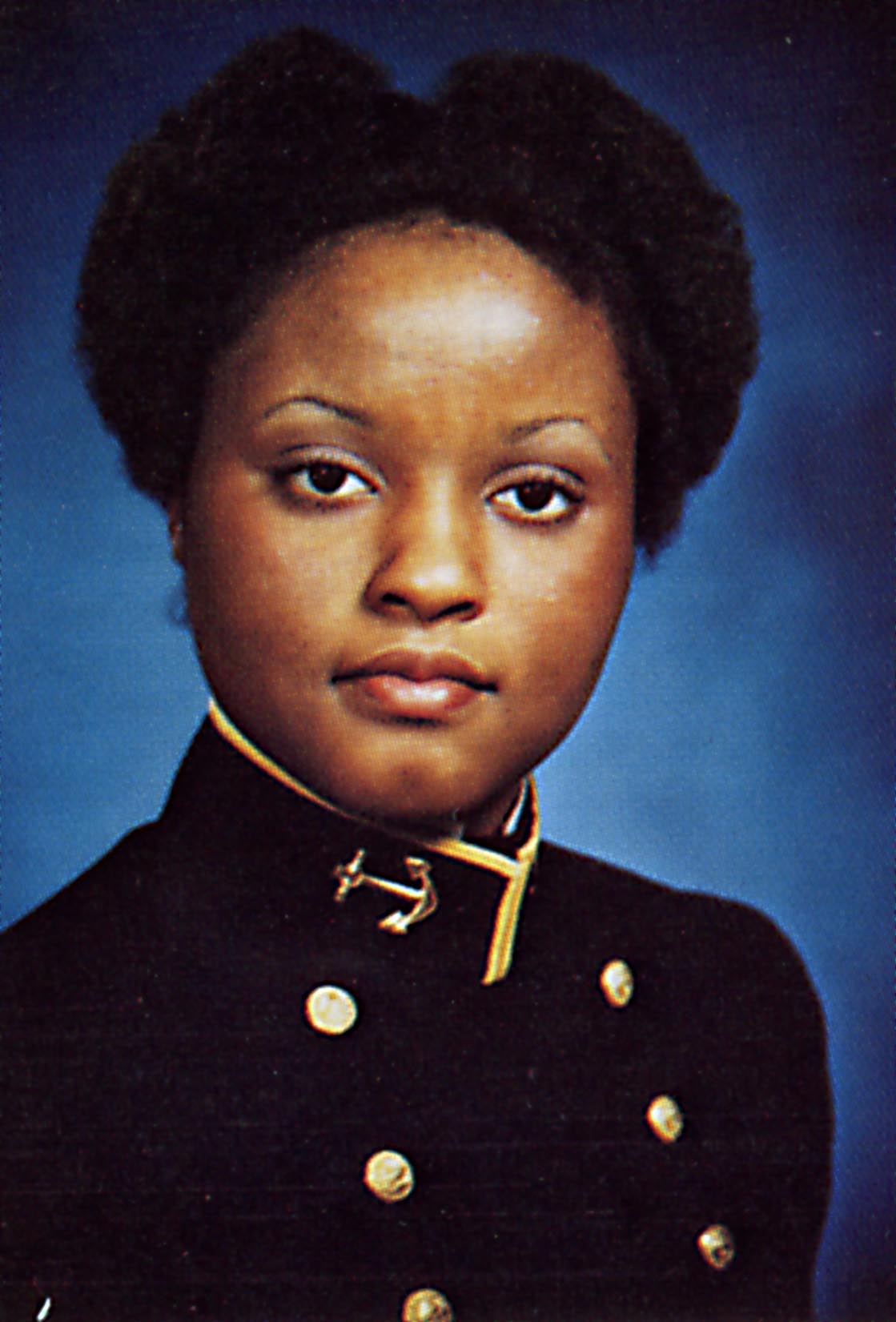
Although he never graduated, James Conyers became the first black man admitted to the prestigious U.S. Naval Academy in Annapolis, Maryland, in 1872. More than a century later, in 1976, Janie Mines followed in his footsteps when she became the Academy’s first female cadet of color. One of 81 women who comprised the Naval Academy’s first-ever female cohort, she graduated in 1980 and subsequently pursued a career in business. She is now an independent management consultant.
1977: Andrew Young is America’s first African American ambassador to the United Nations.

Andrew Young has been a lot of things in his lifetime. A former civil rights activist, he was an ordained minister, a senior aide to Martin Luther King, Jr., executive director of the SCLC, and a congressman, having served in the U.S. House of Representatives from 1973 until 1977. Perhaps his most important role, however, was that of U.S. ambassador to the United Nations. President Jimmy Carter appointed him to that position in 1977, and he served until 1979. He was the nation’s 14th United Nations ambassador, and its first of color.
1978: Max Robinson is the first black man to co-anchor a national network TV news broadcast.
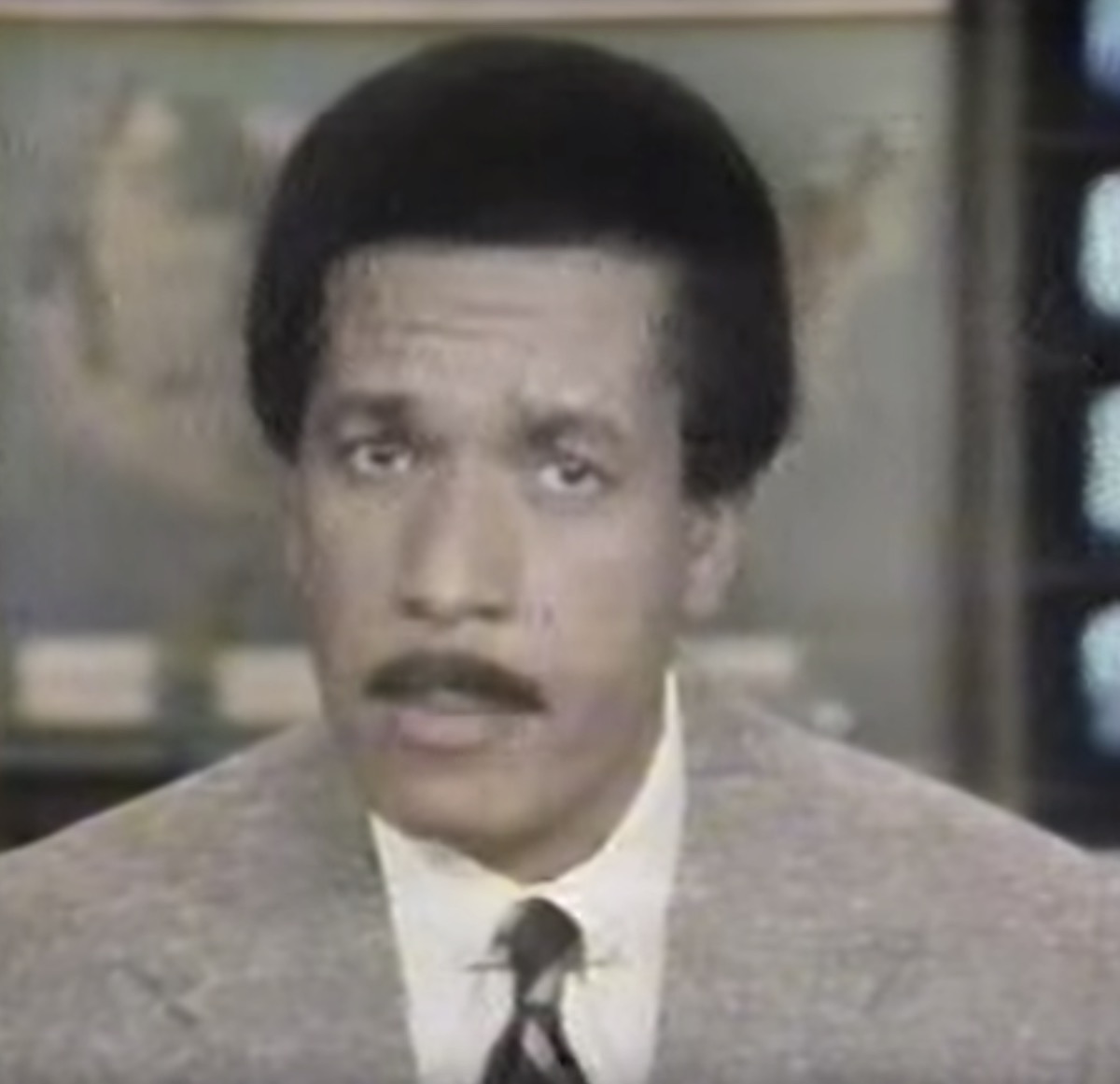
Although his legacy is often forgotten, broadcast journalist Max Robinson was the first African American to sit in the anchor seat on a national TV network’s nightly news broadcast. A founding member of the National Association of Black Journalists, he co-anchored ABC World News Tonight from 1978 until 1983, serving alongside white anchors Frank Reynolds and Peter Jennings, who eventually was named the broadcast’s sole anchor.
1979: Hazel Johnson is the U.S. Army’s first female general of color.
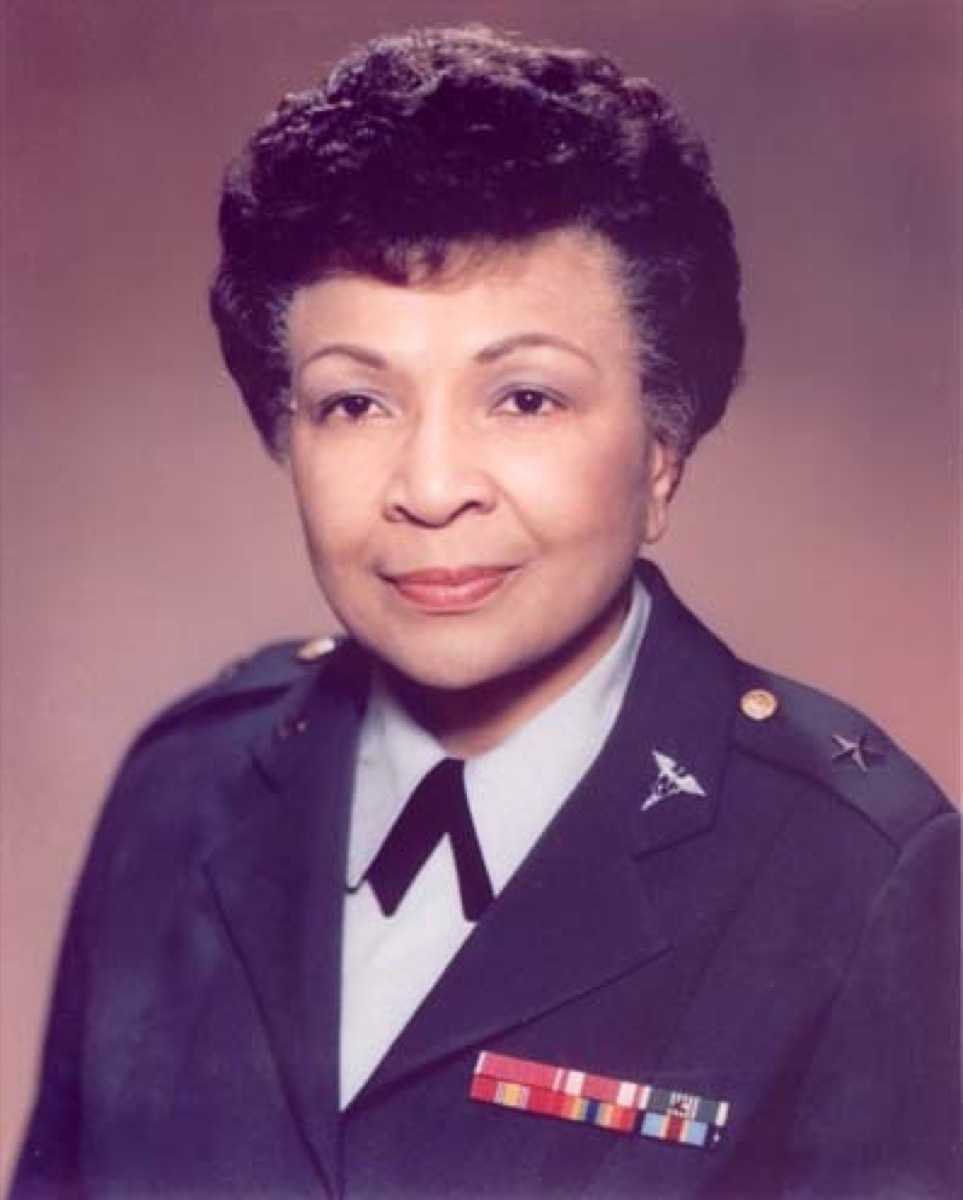
When she joined the military in 1955, U.S. Army nurse Hazel Johnson wanted to see the world and hone her nursing skills. She did not intend to make history, but that’s exactly what she did when she became the first African American woman in the Army to achieve the rank of general. It happened in 1979, when Johnson was nominated to become the 16th chief of the Army Nurse Corps—which came with a promotion in rank to brigadier general. According to the Army Women’s Foundation, Johnson, who earned a doctorate in educational administration from Catholic University in 1978, also was the first Army Nurse Corps chief with an earned PhD.
1980: Robert and Sheila Johnson establish Black Entertainment Television.
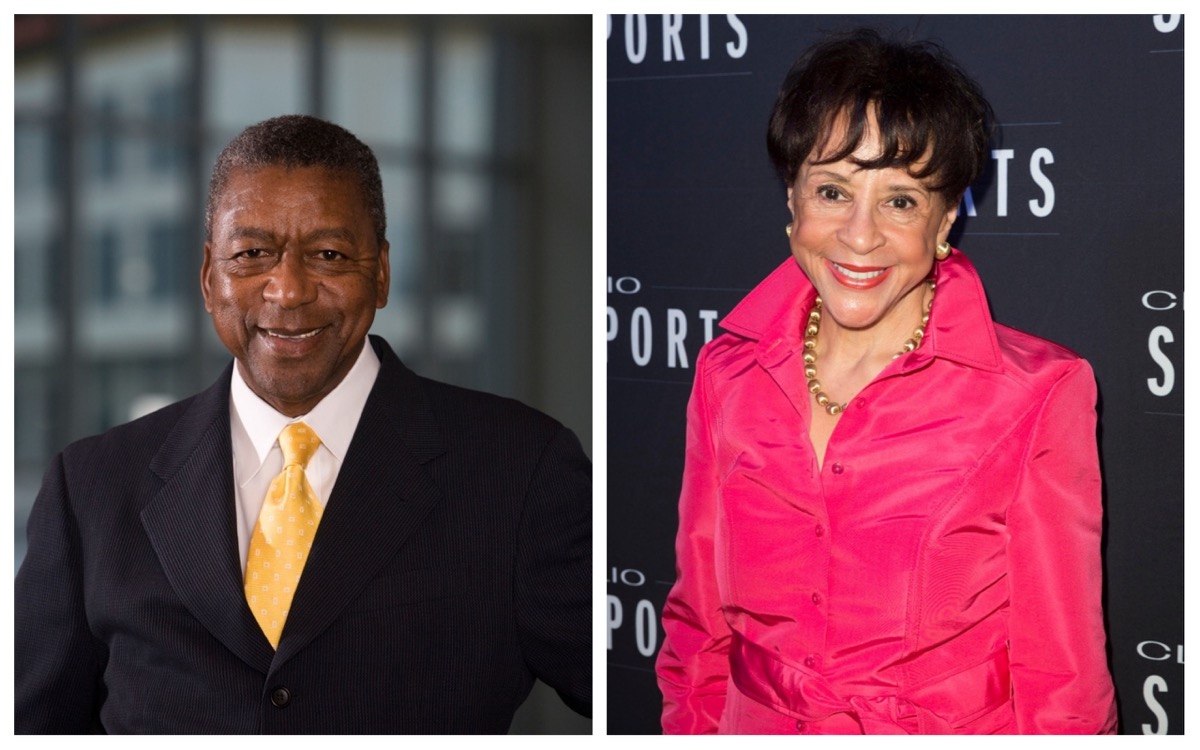
At the dawn of pay TV, entrepreneur Robert Johnson had a brilliant but controversial idea: He wanted to create a cable television channel that was designed for and targeted to African American viewers exclusively. To make it happen, he took out a $15,000 loan, which he and his wife, Sheila Johnson, used to establish Black Entertainment Television (BET) in 1980. A $500,000 investment from a well-known cable-TV titan helped get the channel off the ground. Now a fixture of black media, it became the first black-owned company listed on the New York Stock Exchange in 1991. Johnson subsequently bought back all of BET’s stock, then sold the company to media giant Viacom for $3 billion. According to CNBC, the transaction made the Johnsons the first-ever African American billionaires, both male and female.
1981: Inventor Mark Dean celebrates the birth of the home computer.

Personal computers have been around since the 1970s, but they didn’t begin to really take off until approximately 1981. That’s when IBM introduced the IBM 5150, otherwise known as the IBM Personal Computer. The small computer was among the first machines designed for homes and businesses—and it was created in part by African American inventor and computer engineer Mark Dean, who according to Engadget, was chief engineer of the 12-person team that designed the original IBM PC. Dean, it says, holds three of the nine original patents for the computer.
1982: Alexa Canady is the first black female brain surgeon.
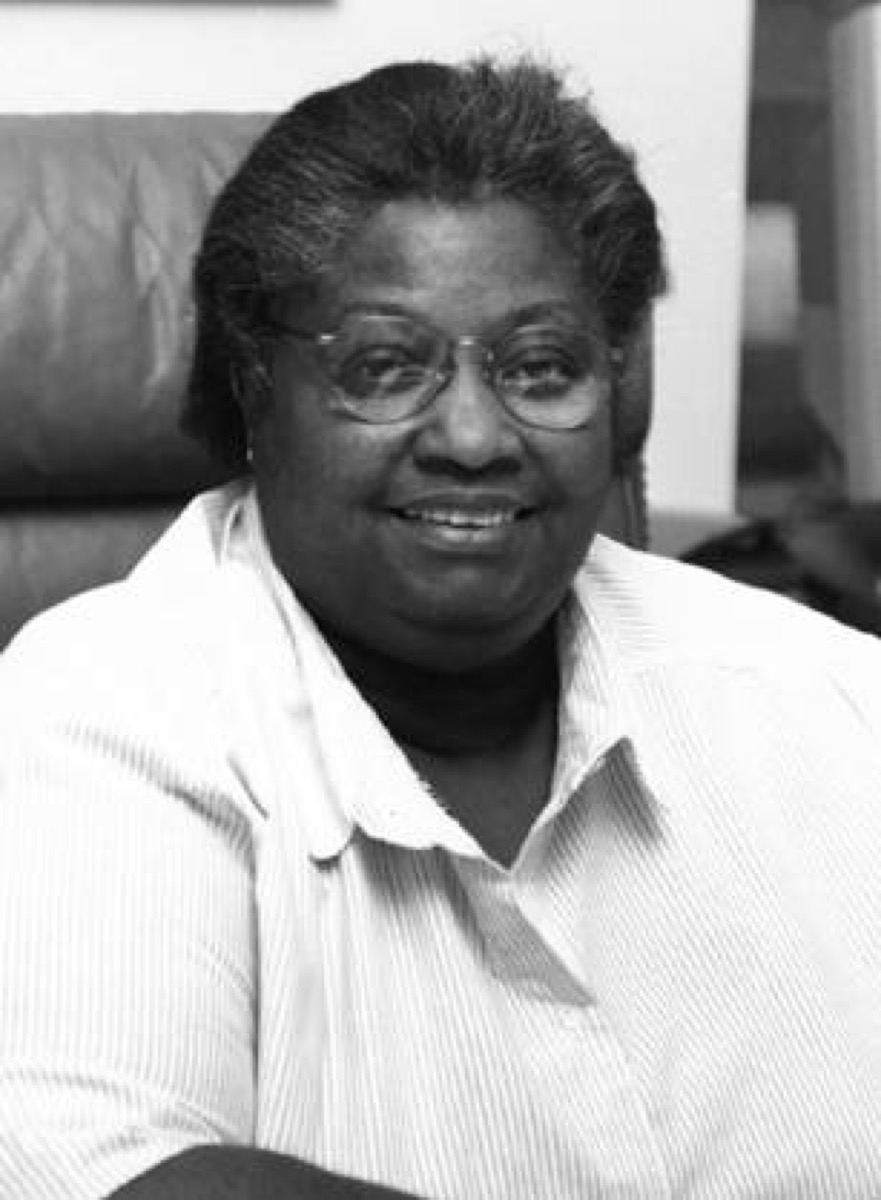
Although she almost dropped out of college as an undergraduate, Alexa Canady stayed the course and graduated not only from college, but also from medical school, ultimately becoming the country’s first African American woman neurosurgeon in 1982. Two years later, in 1984, Canady blazed yet another trail when she was certified as a diplomat of the American Board of Neurological Surgery (ABNS), going from becoming the first African American woman neurosurgeon to becoming the first board-certified African American woman neurosurgeon.
1983: Guion Bluford is the first African American in space.

Although Neil Armstrong had made a “giant leap for mankind” when he landed on the moon in 1969, the space race felt like a segregated sport until 1983. That’s when NASA astronaut Guion “Guy” Bluford entered low Earth orbit aboard the Space Shuttle Challenger, becoming the first African American in space. A former Air Force pilot, Bluford flew a total of four shuttle missions, logging a total of 688 hours in space, according to the National Air and Space Museum.
1984: Jesse Jackson is the first African American man to run for president.

While Congresswoman Shirley Chisholm was the first African American to make a bid for the White House, the Rev. Jesse Jackson followed in Chisholm’s footsteps 12 years later when he mounted his own campaign for the Democratic nomination, becoming the second African American and the first black man to do so. Jackson—a civil rights leader who, in 1971, established People United to Save Humanity (PUSH), an organization dedicated to improving the economic conditions of black communities across America—lost his bid. According to NBC News, however, he won more than 3 million votes during the primary elections, which constituted almost 20 percent of all votes cast.
1985: Gwendolyn Brooks is the first African American U.S. Poet Laureate.
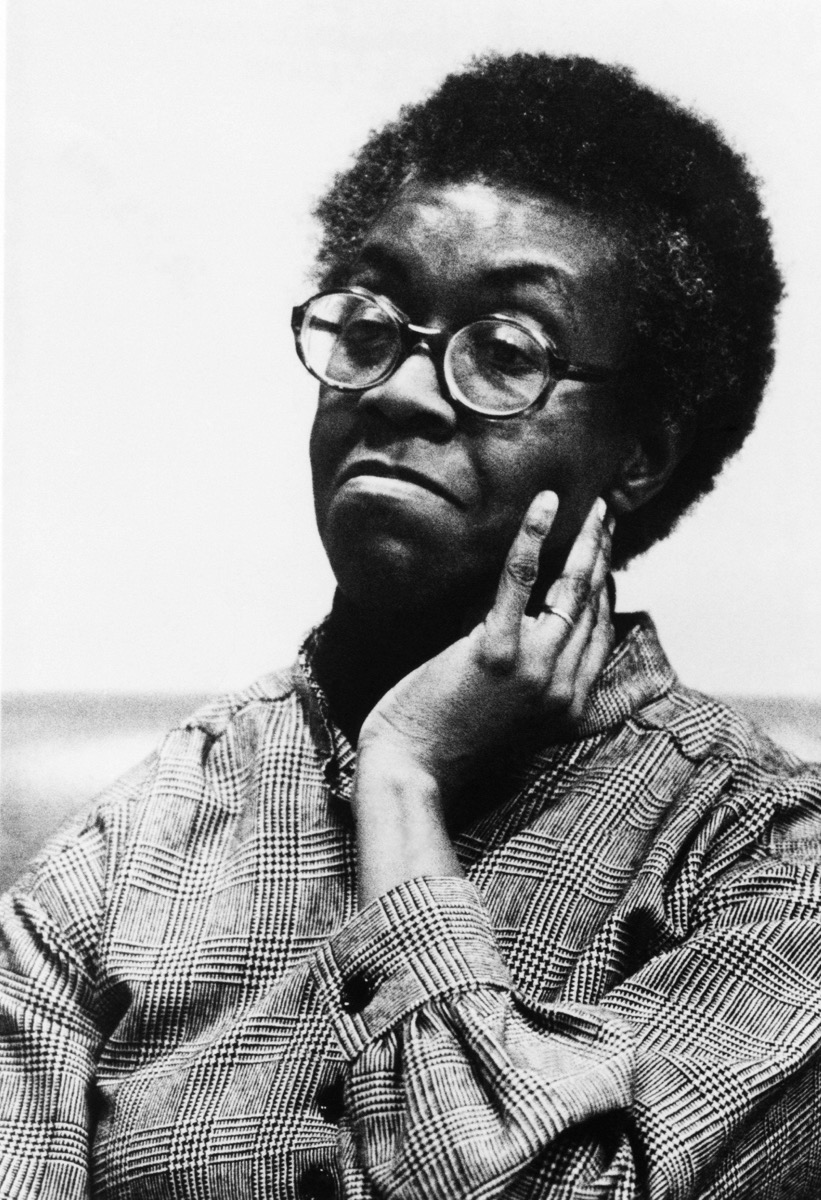
During a distinguished career that spanned more than 50 years, African American poet Gwendolyn Brooks authored more than 20 books of poetry—including 1949’s Annie Allen, for which she won the Pulitzer Prize in 1950, becoming the first-ever African American to win the prestigious writing accolade. That was near the beginning of her career. Near the end, in 1985, she broke another color barrier when she became the first black woman to be named consultant in poetry to the Library of Congress, a post known today as Poet Laureate. For that and her many other achievements, the Poetry Foundation calls her “one of the most highly regarded, influential and widely read poets of 20th-century American poetry.”
1986: The Oprah Winfrey Show airs nationwide.

Oprah Winfrey is a modern-day Midas: Everything she touches turns to gold. But it wasn’t always that way. Before she was a global media magnate, Oprah was a local TV news anchor struggling to make a name for herself. Her big break arrived in 1984, when she took over A.M. Chicago, a morning talk show in Chicago whose low ratings she quickly turned around. When she beat hometown hero and national daytime-TV darling Phil Donahue in Chicago’s ratings, she was offered a chance to syndicate her program for a national audience. The first episode of The Oprah Winfrey Show aired nationwide on Sept. 8, 1986. When the show finally ended its run in 2011, its final episode had an audience of 16.4 million viewers, according to The Hollywood Reporter.
1987: Aretha Franklin is the first woman inducted into the Rock and Roll Hall of Fame.
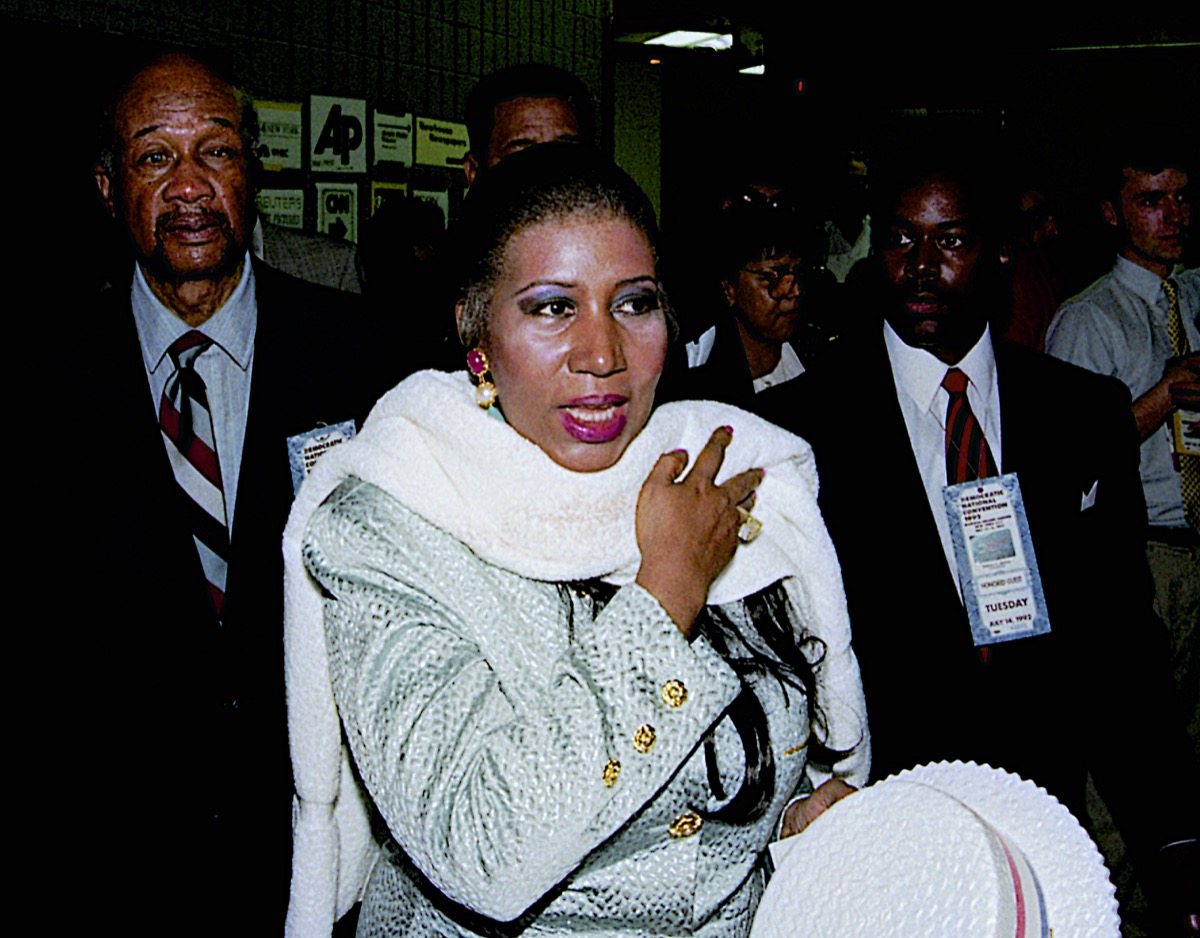
Soul songstress Aretha Franklin was best known for her 1967 rendition of Otis Redding’s “Respect.” What she so famously sang about she earned once and for all in 1987, when she became the first female artist—black or white—to be inducted into the prestigious Rock and Roll Hall of Fame. By the time of her death in 2018, The New York Times reports, the “Queen of Soul” had recorded more than 100 hit singles and received 18 Grammy Awards, a lifetime achievement award, and even a Presidential Medal of Freedom.
1988: Toni Morrison wins the Pulitzer Prize for her novel Beloved.

Toni Morrison’s Beloved tells the heartbreaking story of Sethe, an African American woman who begins her life as a slave in Kentucky and ends it as a slave of an entirely different sort while she’s a free woman in Cincinnati. One of the most important works of contemporary African American literature, it received the Pulitzer Prize for fiction in 1988, at which time the Pulitzer jurors called the novel “a work of assured, immense distinction, destined to become an American classic.”
1989: Colin Powell is the first black chairman of the Joint Chiefs of Staff.
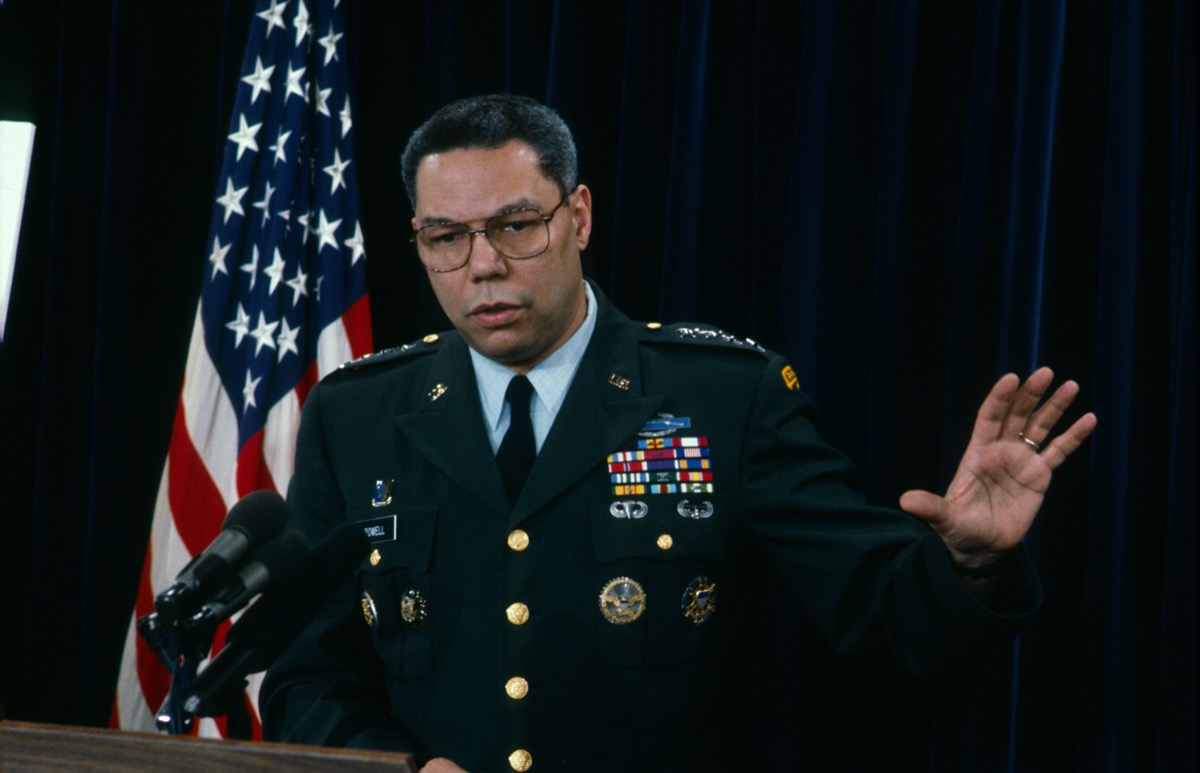
According to U.S. law, the chairman of the Joint Chiefs of Staff is the highest-ranking and most senior military officer in the United States Armed Forces, charged with providing military counsel directly to the president and his or her cabinet. In 1989, under President George H. W. Bush, Army Gen. Colin Powell became the first African American and the youngest-ever officer to occupy that esteemed position. Powell retired in 1993, and subsequently served as secretary of state under President George W. Bush.
1990: Douglas Wilder is the first African American governor of a U.S. state.
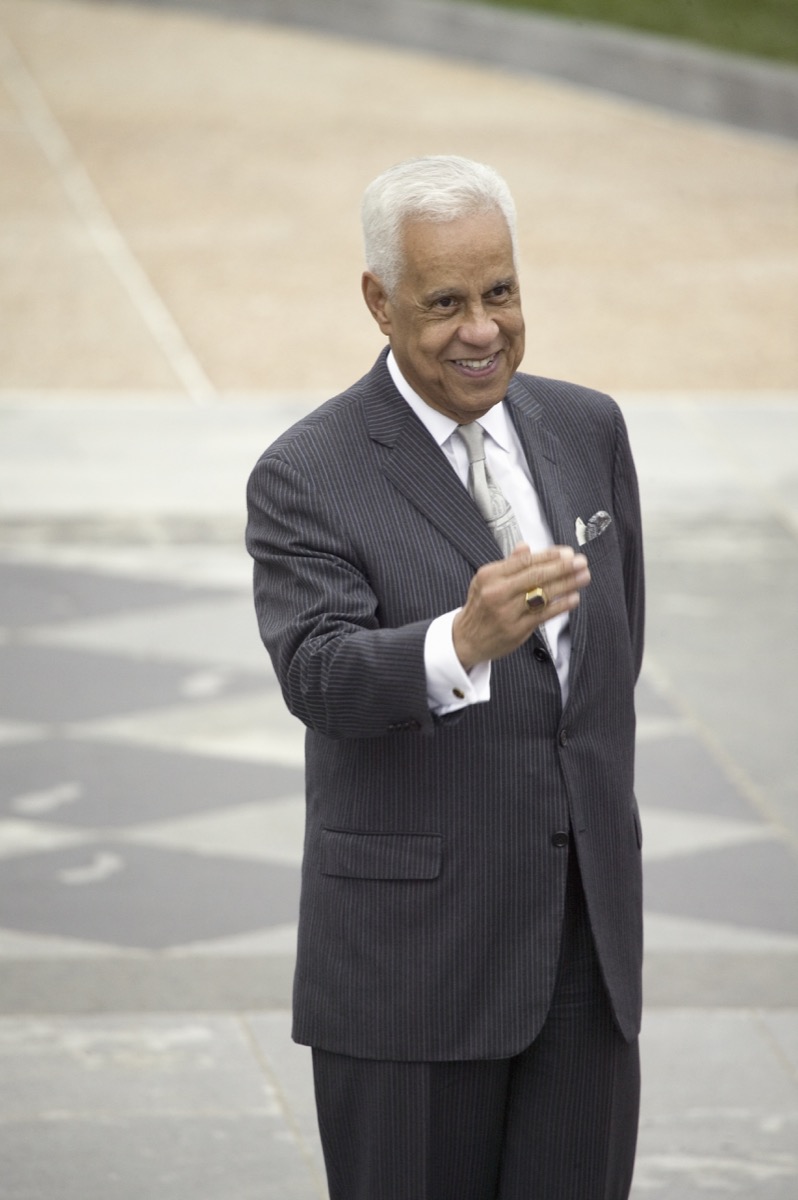
By the 1990s, African Americans had served as mayors, congressmen, and senators. But they hadn’t yet reached the governor’s office. That changed on Jan. 13, 1990, when L. Douglas Wilder was seated as the 66th governor of Virginia. He was the first black governor not only of the Commonwealth of Virginia, but of any U.S. state. Twenty-one years earlier, in 1969, Wilder had won his first elected office when he was voted into Virginia’s state senate, becoming the first African American state senator in Virginia since Reconstruction.
1991: Walter Massey is the first African American director of the National Science Foundation.
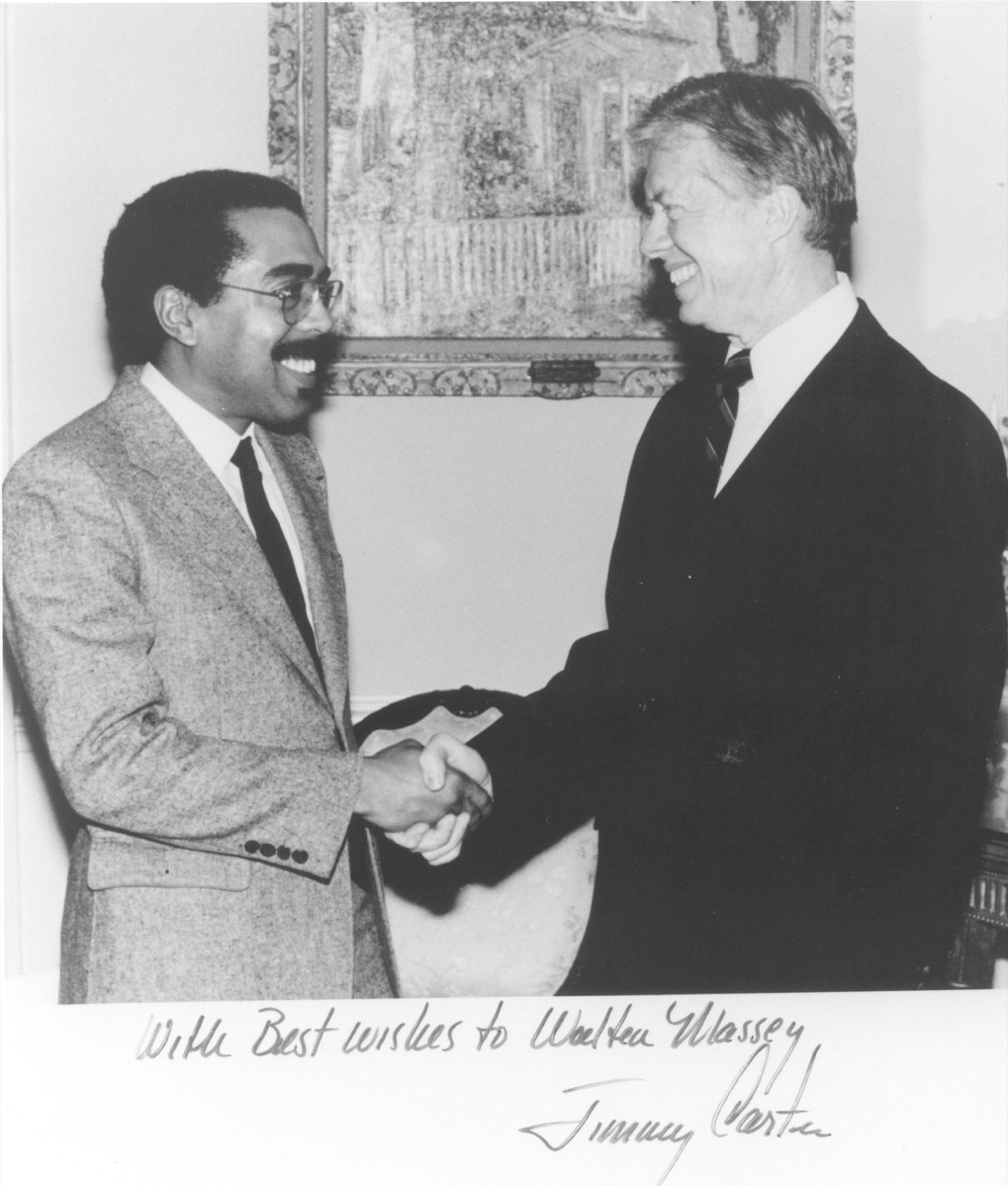
The National Science Foundation (NSF) was established in 1950 to advance federal research and education in the non-medical sciences. Four decades later, in 1991, President George H. W. Bush named its first African American director: physicist Walter E. Massey, PhD, who served from 1991 until 1993. Now president emeritus of the School of the Art Institute of Chicago, Massey has spent his career supporting and expanding science education for minorities and women.
1992: Carol Moseley Braun is the first African American woman senator.
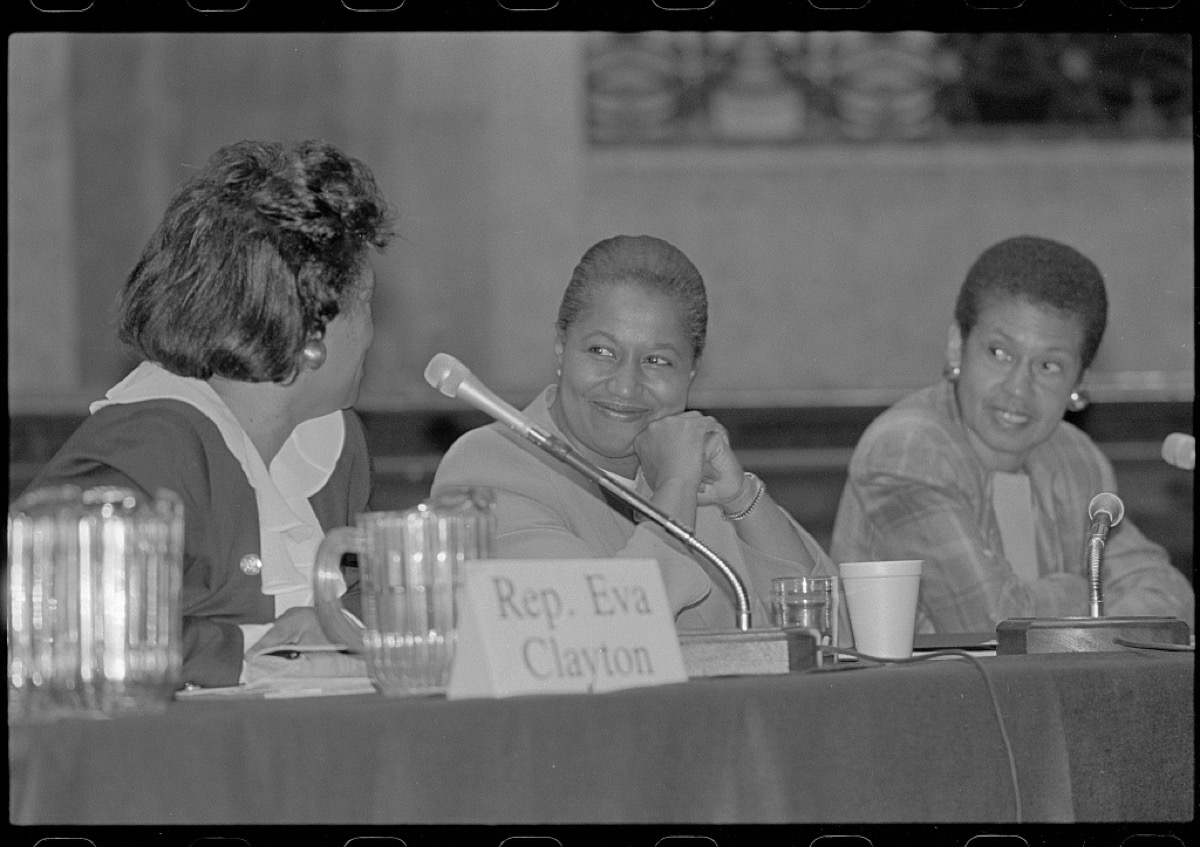
When she was elected to the U.S. Senate in 1992, Carol Mosely Braun became the body’s first-ever black female senator, and only the second African American senator since Reconstruction. A former prosecutor, Mosely Braun served in the Senate until Jan. 1999, after which she became the U.S. ambassador to New Zealand. In 2004, she sought the Democratic nomination for president. Of her senate career, Mosely Braun said, “I cannot escape the fact that I come to the Senate as a symbol of hope and change. Nor would I want to, because my presence in and of itself will change the U.S. Senate.”
1993: Joycelyn Elders is the first African American and first woman surgeon general.
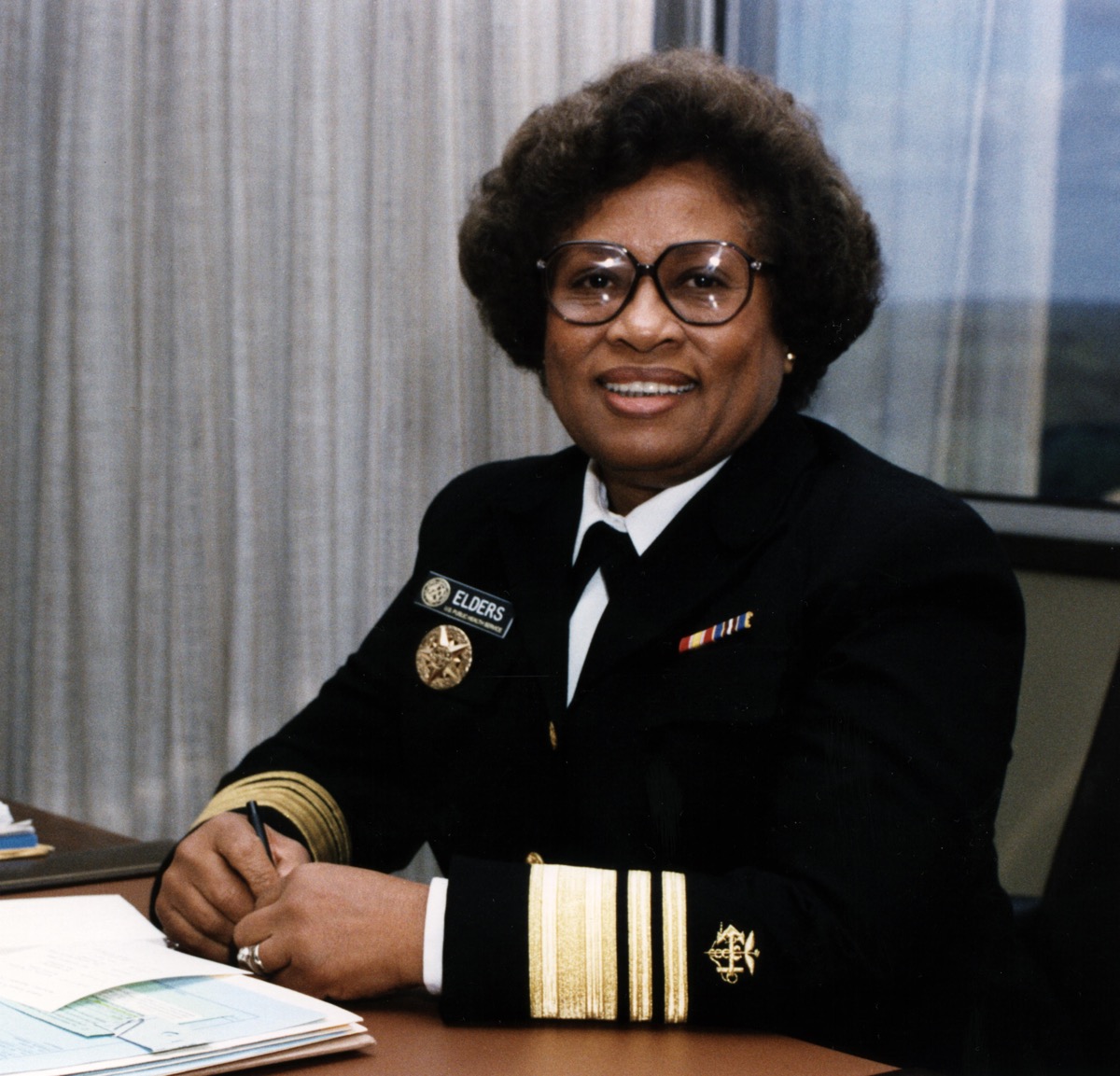
In 1978, Joycelyn Elders, MD, became the first person in her native state of Arkansas to become board-certified in pediatric endocrinology—the treatment of children with hormonal and glandular disorders. Fifteen years later, in 1993, she etched her name into the medical history books once more when she became the 15th surgeon general of the United States. Appointed by President Bill Clinton, she was the first African American and only the second woman to fill the role, in which her chief priorities included increasing access to women’s reproductive health care and promoting sex, alcohol, drug, and tobacco education in public schools.
1994: Darnell Martin is the first African American woman to direct a major studio movie.
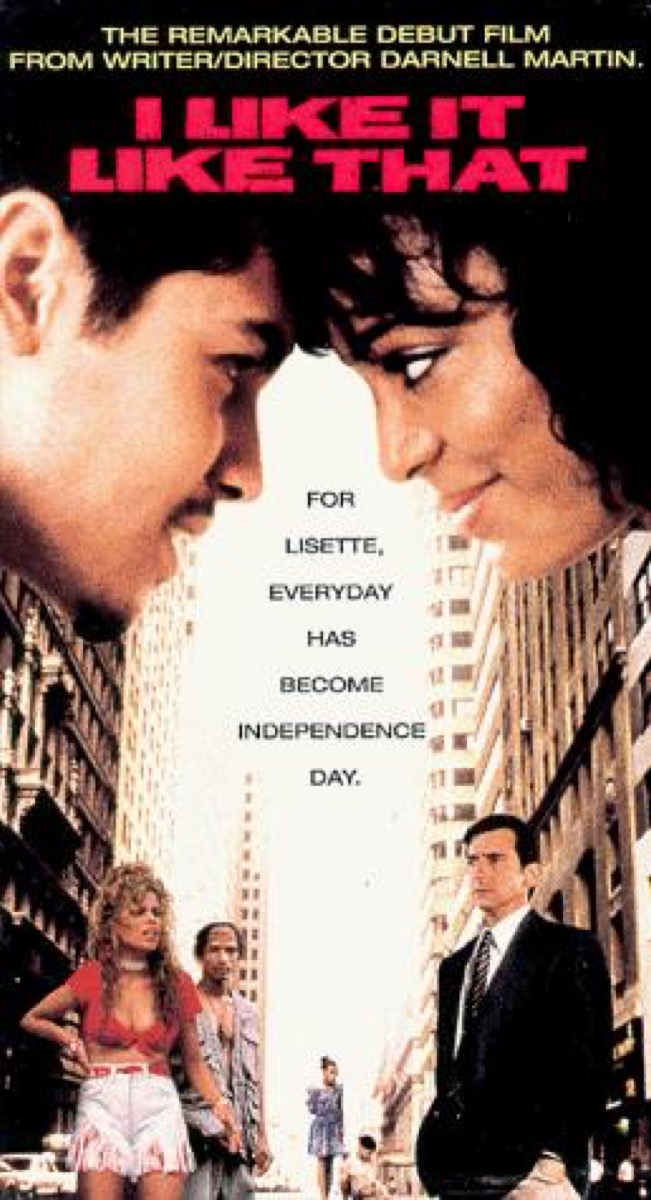
Because it was her debut film, the 1994 movie I Like It Like That—about a young woman of black and Hispanic heritage who struggles to support her children while her husband is in prison—was a major milestone in the life of filmmaker Darnell Martin. But it was also a significant milestone in African American and film history as a whole, since the Paramount Pictures movie was the first release from a major studio that had been written and directed by an African American woman.
1995: The Million Man March takes place in Washington, D.C.
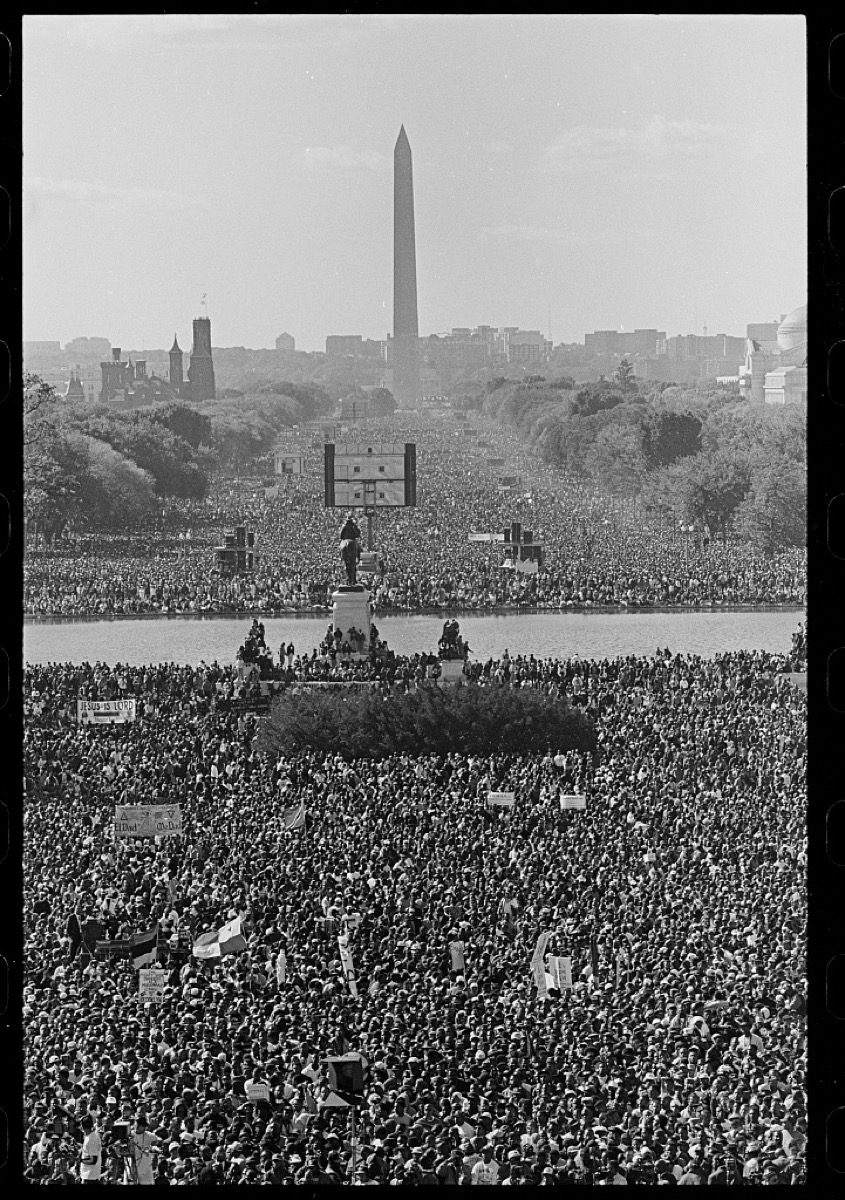
With estimates ranging from 400,000 to over 1 million, exactly how many men actually attended the Million Man March in Washington, D.C., is debatable. What’s certain, however, is the historical significance of the event, which Louis Farrakhan—the controversial head of the Nation of Islam—organized on Oct. 16, 1995. His goal: inspiring and empowering African American men to be better fathers, husbands, sons, and leaders within their communities. According to The Washington Post, the march “has become a cultural touchstone” and “a call for introspection … that many black men continue to cite as a seminal moment in contemporary history.”
1996: George Walker becomes the first African American to win a Pulitzer Prize for music.
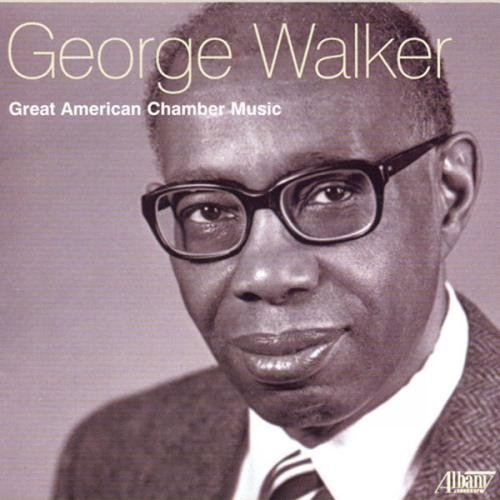
Did you know that Pulitzer Prizes are awarded not only for literature, but also for music? Black composer, pianist, and educator George Walker won one such award in 1996. Walker, who was the first African American to receive a Pulitzer for music, was honored for Lilacs, a composition for voice and orchestra that was first performed on Feb. 1, 1996, by the Boston Symphony Orchestra, which commissioned the work. Before his death in 2018, Walker—who was also the first black graduate of the Curtis Institute of Music, the first black musician to perform at New York’s Town Hall, the first black soloist to perform with the Philadelphia Orchestra, and the first black instrumentalist to be signed by a major classical artist management agency—had published more than 70 musical works, according to the Pulitzer organization.
1997: Tiger Woods is the first black golfer to win the Masters Tournament.

As of 2020, Tiger Woods has won a total of 15 major championships during his prestigious golfing career. Perhaps the most memorable, however, was his first: the 1997 Masters Tournament at Augusta National Golf Club, where he finished 12 strokes ahead of runner-up Tom Kite and became not only the youngest golfer in history to win the championship, but also the first African American.
1998: Lillian Fishburne is the first African American woman to achieve flag rank in the U.S. Navy.
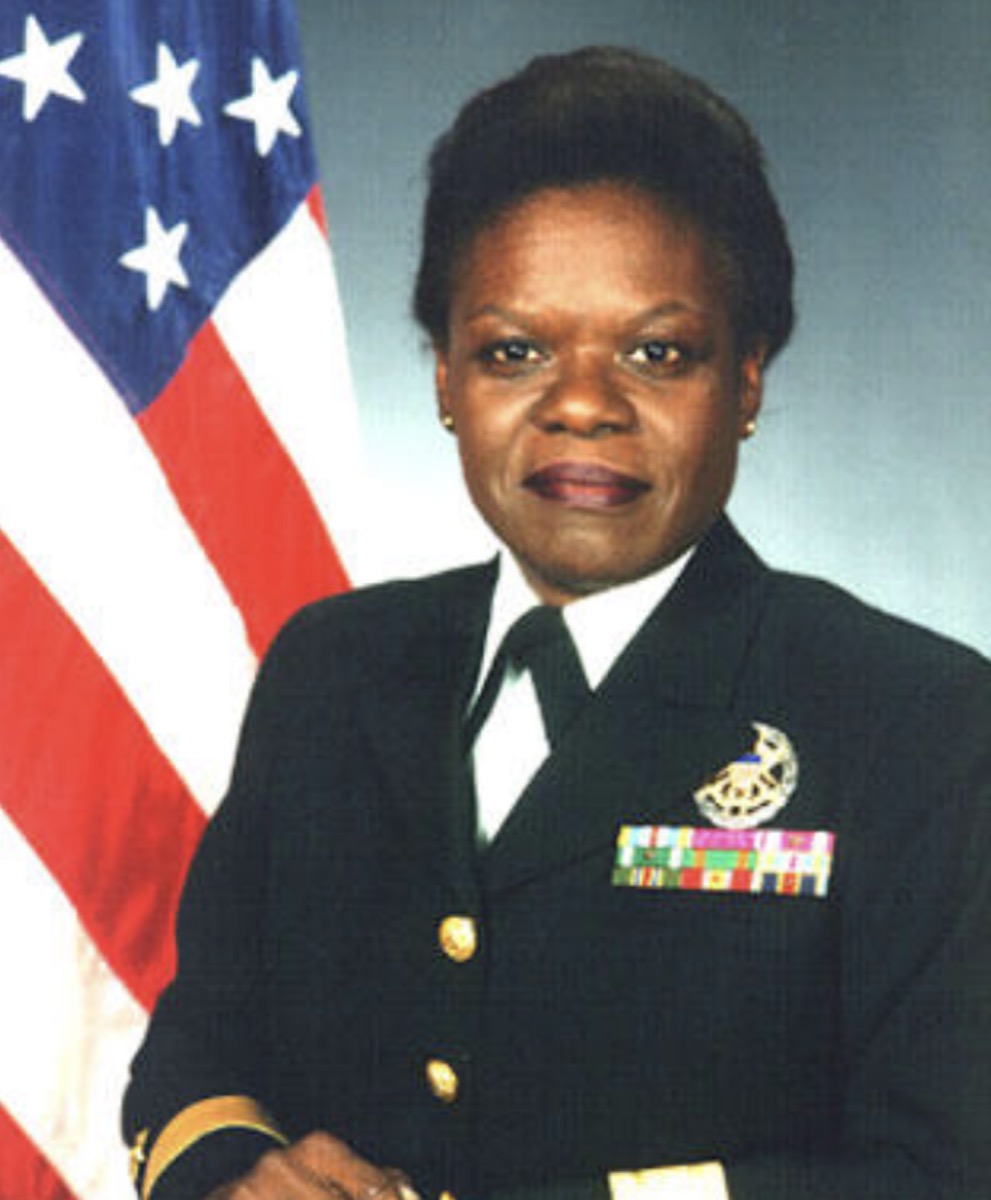
Only the best and brightest officers achieve “flag rank” in the U.S. military. One of those officers is naval officer Lillian Fishburne, who in 1998 was promoted to the rank of rear admiral—a two-star flag officer—in the U.S. Navy. Fishburne, who was commissioned as a Navy officer in 1973, is the first African American woman to achieve that rank.
1999: Maurice Ashley is the world’s first black chess grandmaster.

The 1900s saw black athletes shatter racial barriers in football, baseball, basketball, track and field, golf, tennis, and more. It wasn’t until the very end of the 20th century, however, that African Americans finally made their mark in an altogether different kind of competition: chess. It happened in 1999, when Maurice Ashley—a Jamaican immigrant who grew up in Brooklyn, New York—became a grandmaster after more than 15 years of dedicated study and gameplay. At the time, there were only 470 chess grandmasters in the world, according to The Christian Science Monitor. And just one of them—Ashley—was black.
2000: Condoleezza Rice is the first black woman nominated to serve as national security advisor.
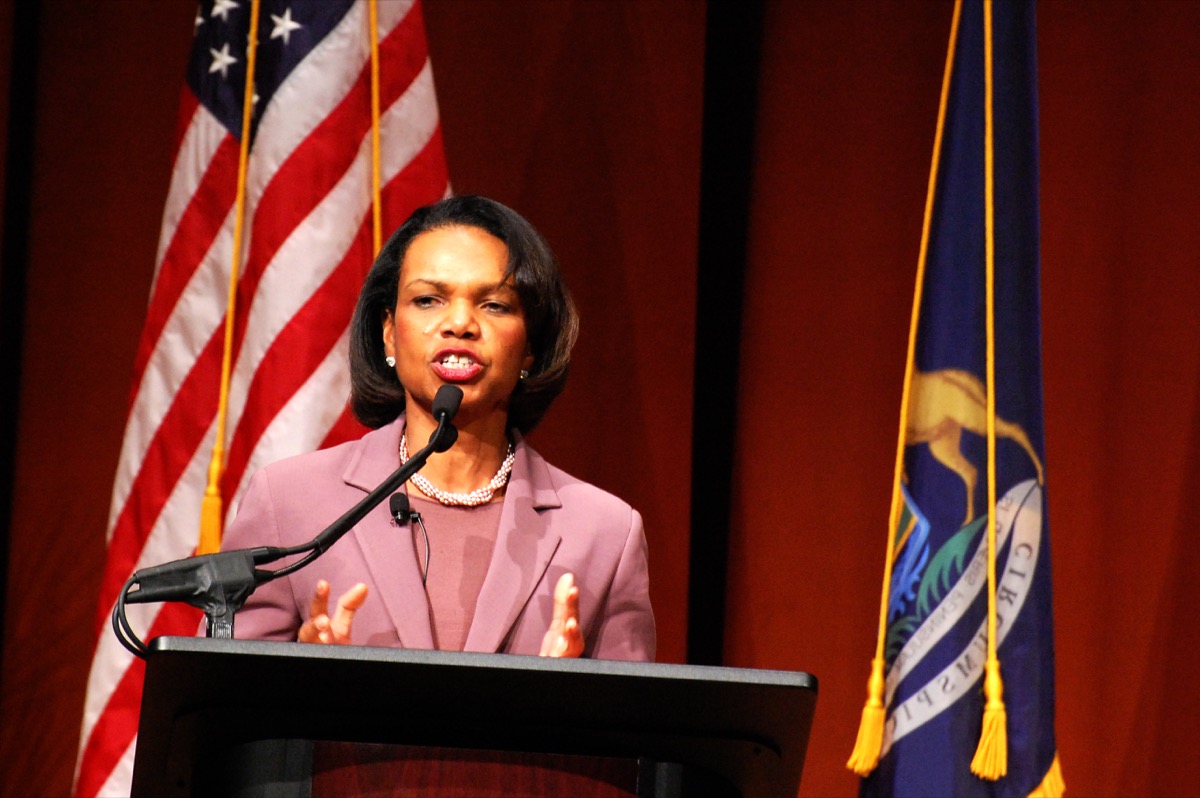
After the U.S. Supreme Court decided the highly contested 2000 presidential election in his favor, President George W. Bush moved quickly to name the senior members of his administration. When he did, he made history by nominating Condoleezza Rice to serve as national security advisor. Upon being confirmed in Jan. 2001, Rice—who had previously served on the National Security Council under Bush’s father, President George H. W. Bush—became the first black woman to hold the position. It was neither her first “first” nor her last: In 1993, Rice became the first woman and the first African American to become provost of Stanford University, and in 2005, she was the first black woman to become secretary of state.